Love Your Unique Body – It’s the Only One You’ve Got
Love Your Unique Body

“Love Your Unique Body” means accepting and appreciating your body just the way it is, without trying to change it to match others. It’s about respecting your body, taking care of it, and being proud of what makes it different and special.
Introduction – Love Your Unique Body

In a world full of filters, comparison, and unrealistic beauty standards, it's easy to forget one simple truth: your body is amazing just the way it is.
Loving your unique body means accepting everything about yourself — your shape, size, color, scars, stretch marks, curves, or bones — and seeing them not as flaws, but as beautiful parts of your story.
Each body is different. That difference is not something to be ashamed of — it's something to be celebrated. From the way you smile to the way your body moves and supports you every day, you are already enough.
This journey isn’t about becoming “perfect” — it’s about learning to be kind to yourself, letting go of harsh judgments, and choosing self-respect over self-criticism.
Whether you’re just starting to embrace your body or still struggling with acceptance, this guide is here to remind you: You are worthy, you are beautiful, and your body deserves love — exactly as it is.
Why “Love Your Unique Body” Matters

In today’s world, we’re constantly surrounded by edited images, beauty trends, and pressure to look a certain way. This makes many people feel like they’re not good enough, just because their body doesn’t match what they see online or in the media.
But here’s the truth: your worth isn’t based on your looks — and your body doesn’t have to be “perfect” to be loved.
Here’s why loving your unique body truly matters:
- It builds confidence: When you stop criticizing your body and start appreciating it, you begin to feel stronger, more confident, and more comfortable in your skin.
- It supports mental health: Negative body image is linked to anxiety, depression, and low self-esteem. Loving your body helps reduce this emotional burden and leads to a healthier mind.
- It teaches self-respect: When you love your body, you treat it better — with kindness, good food, rest, and care — not out of shame, but out of respect.
- It breaks the cycle of comparison: Instead of trying to look like someone else, you start seeing beauty in differences — your own and others'.
- It sets an example: When you love and accept yourself, you inspire others (especially children, friends, and family) to do the same.
Embracing Diversity and Self-Acceptance
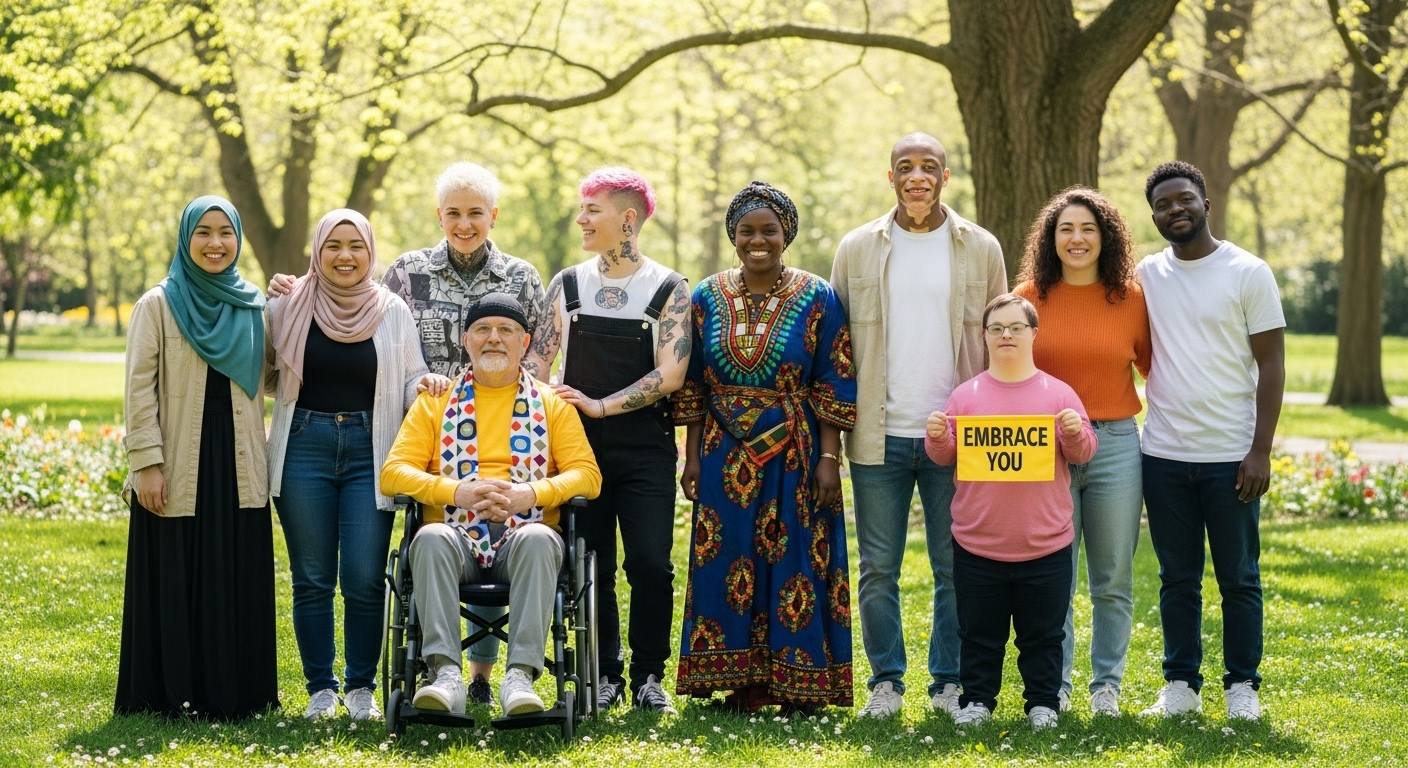
Every human body is different — and that's something to celebrate. Diversity is what makes us beautiful. We come in all shapes, sizes, skin tones, abilities, and features. There's no one “right” way to look, and there’s no such thing as a “perfect” body.
Yet, for a long time, society has shown us only one version of beauty. That narrow view made many people feel invisible, ashamed, or unworthy. But times are changing — and so is the definition of beauty.
✨ Embracing Diversity Means:
- Respecting all body types — slim, curvy, tall, short, and everything in between.
- Appreciating different skin colors, textures, and facial features.
- Understanding that disabilities, scars, stretch marks, or birthmarks are not flaws — they are part of a person’s unique story.
- Accepting gender diversity and self-expression, because everyone deserves to feel seen and valued in their own skin.
💖 Self-Acceptance Begins With:
- Letting go of comparison.
- Talking to yourself kindly.
- Recognizing that your body is enough, even if it doesn’t match what you see on social media.
- Trusting that your worth is not defined by numbers — not on a scale, not on your clothes, not on your Instagram.
🪞 Understanding Body Image

Body image is how you see and feel about your own body — the mental picture you carry in your mind. It’s not just about how your body looks to others, but how you think and feel about it inside.
🤔 Why Body Image Matters:
Your body image affects your confidence, self-esteem, and even your mental health. If you have a positive body image, you’re more likely to feel good about yourself, take care of your health, and enjoy life. But if your body image is negative, you might feel unhappy, anxious, or even avoid activities because you don’t like how you look.
🔍 What Influences Body Image?
- Media and Advertising: Often show only a narrow idea of beauty — tall, slim, flawless — which is not realistic for most people.
- Social Media: Filters and edits can create false expectations.
- Family and Friends: Their opinions and comments can shape how you feel about your body.
- Personal Experiences: Past teasing, bullying, or compliments can all affect your self-image.
💡 The Truth About Body Image:
No one’s body is perfect — and that’s completely okay. Body image is about learning to appreciate your body for what it can do, not just how it looks.
🛠️ How to Improve Your Body Image:
- Focus on what your body allows you to do (walk, dance, hug loved ones).
- Avoid negative self-talk or harsh comparisons.
- Surround yourself with positive influences.
- Practice self-compassion and patience — it takes time.
❓ What is Body Image?
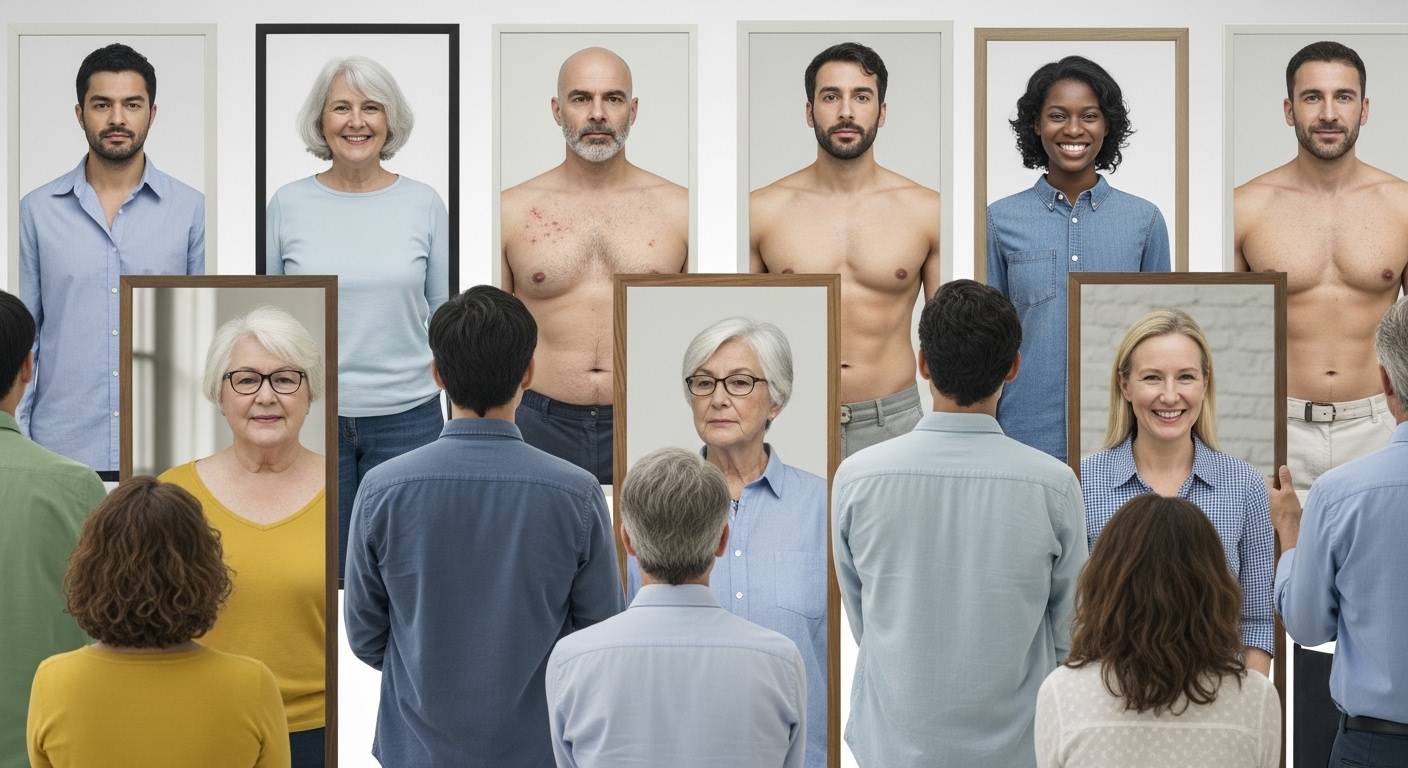
Body image is how you see and feel about your own body. It’s the picture you have in your mind when you think about how you look.
It includes your thoughts, feelings, and attitudes about your body size, shape, color, and features.
📺 How Media and Society Shape Perceptions

The way we see our bodies is heavily influenced by what we see and hear around us — especially from the media and society. These influences shape our ideas of what is considered “beautiful” or “normal.”
🎯 Media’s Role:
- Idealized Images: TV, movies, magazines, and social media often show only a narrow type of beauty — usually very slim, flawless, and edited photos.
- Filters and Photoshop: Many images are digitally altered to remove imperfections, creating unrealistic standards.
- Trends and Influencers: Popular culture promotes certain body types, clothes, and looks as the “best,” making others feel left out or less attractive.
🌍 Society’s Role:
- Cultural Norms: Different cultures have different ideas of beauty, but many societies put pressure on people to look a certain way to fit in.
- Comments and Judgments: Family, friends, and strangers can unintentionally (or intentionally) influence how you feel about your body by praising or criticizing appearance.
- Social Comparison: People often compare themselves to others around them, which can affect self-esteem.
🔑 The Impact:
When we constantly see and hear narrow beauty standards, it’s easy to feel like our natural bodies aren’t good enough. This can lead to low confidence, unhealthy habits, and even mental health struggles.
💪 The Good News:
By becoming aware of these influences, you can challenge unrealistic standards, appreciate your own unique beauty, and choose to focus on what really matters — how you feel inside and how you treat your body with kindness.
⚖️ Body Positivity vs. Body Neutrality
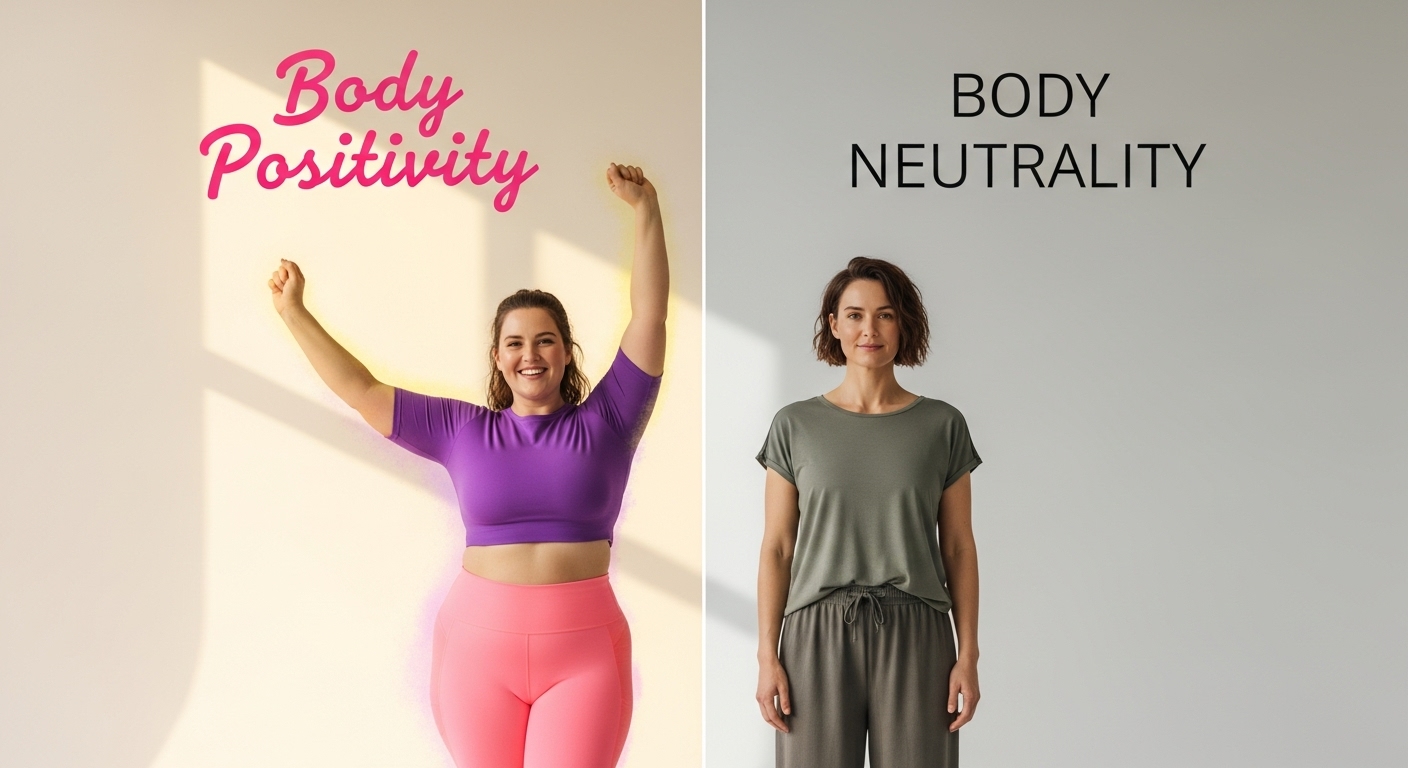
🌸 Body Positivity
Encourages loving and celebrating your body exactly as it is — every curve, freckle, and feature.
It’s about embracing all body types and pushing back against unrealistic beauty standards.
Body positivity often involves expressing pride in your body and encouraging others to do the same.
🌿 Body Neutrality
Focuses on accepting your body without judgment, whether you love it or not.
It’s about shifting attention away from appearance and instead appreciating what your body does for you.
Body neutrality is more about peace and respect than celebration — it’s okay to feel neutral rather than always positive.
🤔 Which One Is Right for You?
Some people feel empowered by body positivity and enjoy celebrating their unique beauty loudly.
Others find body neutrality more peaceful and realistic, especially when loving their body feels hard.
You can also mix both approaches depending on how you feel that day.
📚 Definitions and Differences: Body Positivity vs. Body Neutrality
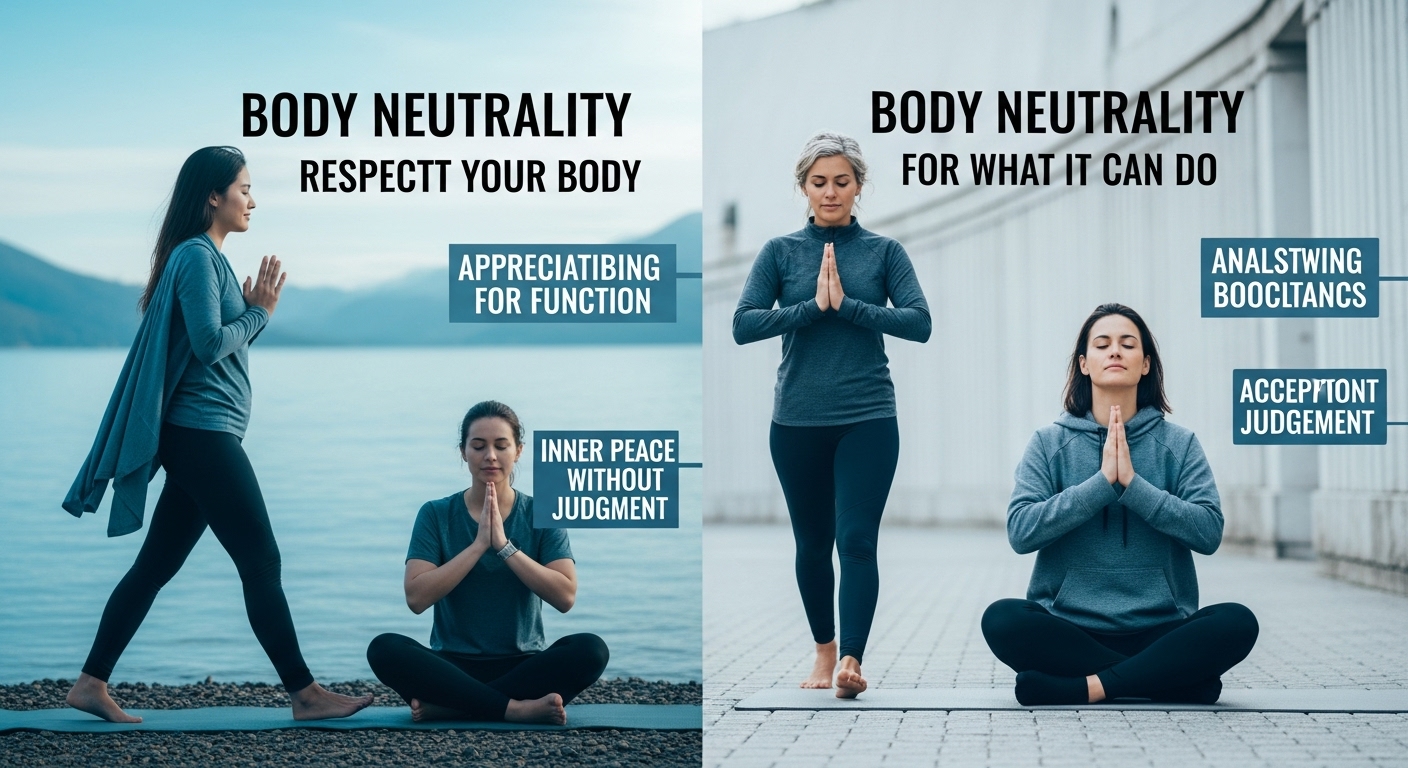
✅ Body Positivity
Definition:
Body positivity is a movement and mindset that encourages people to love and celebrate their bodies exactly as they are, regardless of shape, size, skin tone, or appearance. It challenges traditional beauty standards and promotes self-confidence and pride in one’s unique body.
✅ Body Neutrality
Definition:
Body neutrality is an approach that encourages people to accept their bodies without judgment or strong feelings, focusing instead on what their bodies do rather than how they look. It emphasizes respect and peace with your body, whether or not you feel love for it.
🔍 Key Differences:
| Aspect | Body Positivity | Body Neutrality |
|---|---|---|
| Focus | Loving and celebrating your body | Accepting and respecting your body |
| Emotional Tone | Positive, proud, sometimes loud and expressive | Neutral, calm, and peaceful |
| Goal | To build strong self-love and confidence | To reduce negative feelings and find peace |
| When Helpful | When ready to actively celebrate yourself | When love feels difficult, and neutrality feels safer |
| Relation to Appearance | Emphasizes appearance as worthy of love | Emphasizes function and respect over looks |
💫 Choosing What Resonates With You
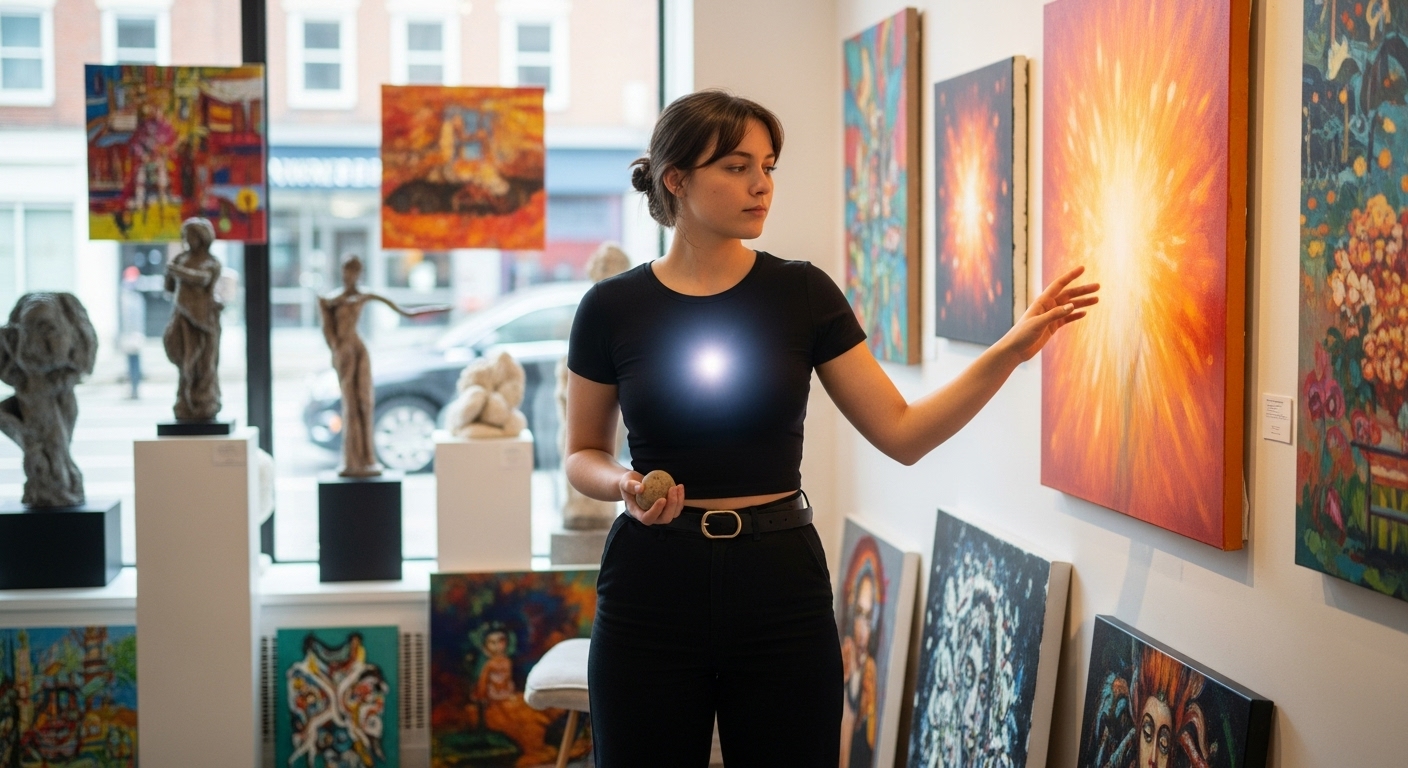
When it comes to loving your body, there’s no one-size-fits-all approach. Everyone’s journey is different, and what feels right for one person might not for another. That’s completely okay!
🌷 How to Choose What Works for You:
- Listen to your feelings: Notice how you feel when you try to love your body loudly (body positivity) or when you practice calm acceptance (body neutrality). Which feels more natural or helpful right now?
- Be flexible: It’s okay to switch between body positivity and body neutrality depending on your mood and circumstances. Some days you may want to celebrate yourself loudly, other days you might just want peace and acceptance.
- Avoid pressure: Don’t force yourself to feel a certain way about your body. Self-love is a personal process — it takes time and patience.
- Experiment and reflect: Try different affirmations, practices, or communities. See what uplifts you and what drains you. Keep what makes you feel good.
🌟 Remember:
The most important thing is kindness—to your body and to yourself. Loving or accepting your body isn’t about perfection; it’s about respect and care.
🧠❤️ Mental Health & Self-Love

Taking care of your mental health is a crucial part of loving your unique body. How you think and feel about yourself impacts your overall well-being — and your relationship with your body.
🧩 The Connection Between Mental Health and Body Image
- Negative body image can lead to anxiety, depression, and low self-esteem.
- Constant self-criticism wears down your confidence and joy.
- Stress about appearance can affect your sleep, eating habits, and daily energy.
🌼 Why Self-Love Helps Mental Health
- Self-love means treating yourself with kindness, patience, and respect.
- It builds resilience — helping you bounce back from negative thoughts and feelings.
- Loving yourself reduces harmful self-judgment and creates space for happiness and peace.
- When you care for your body and mind, you create a positive cycle of well-being.
💡 Simple Self-Love Practices for Mental Health
- Positive affirmations: Remind yourself daily that you are worthy and enough.
- Mindfulness: Pay attention to your feelings without judgment.
- Gratitude: Focus on what your body allows you to do, not just how it looks.
- Reach out: Talk to trusted friends, family, or professionals if you struggle.
- Self-care: Prioritize activities that nourish your body and mind — like rest, hobbies, and movement you enjoy.
🌟 Remember:
Taking care of your mental health is part of loving your unique body. When you love yourself, inside and out, you create a foundation for happiness, confidence, and true well-being.
🛡️ Combating Negative Self-Talk
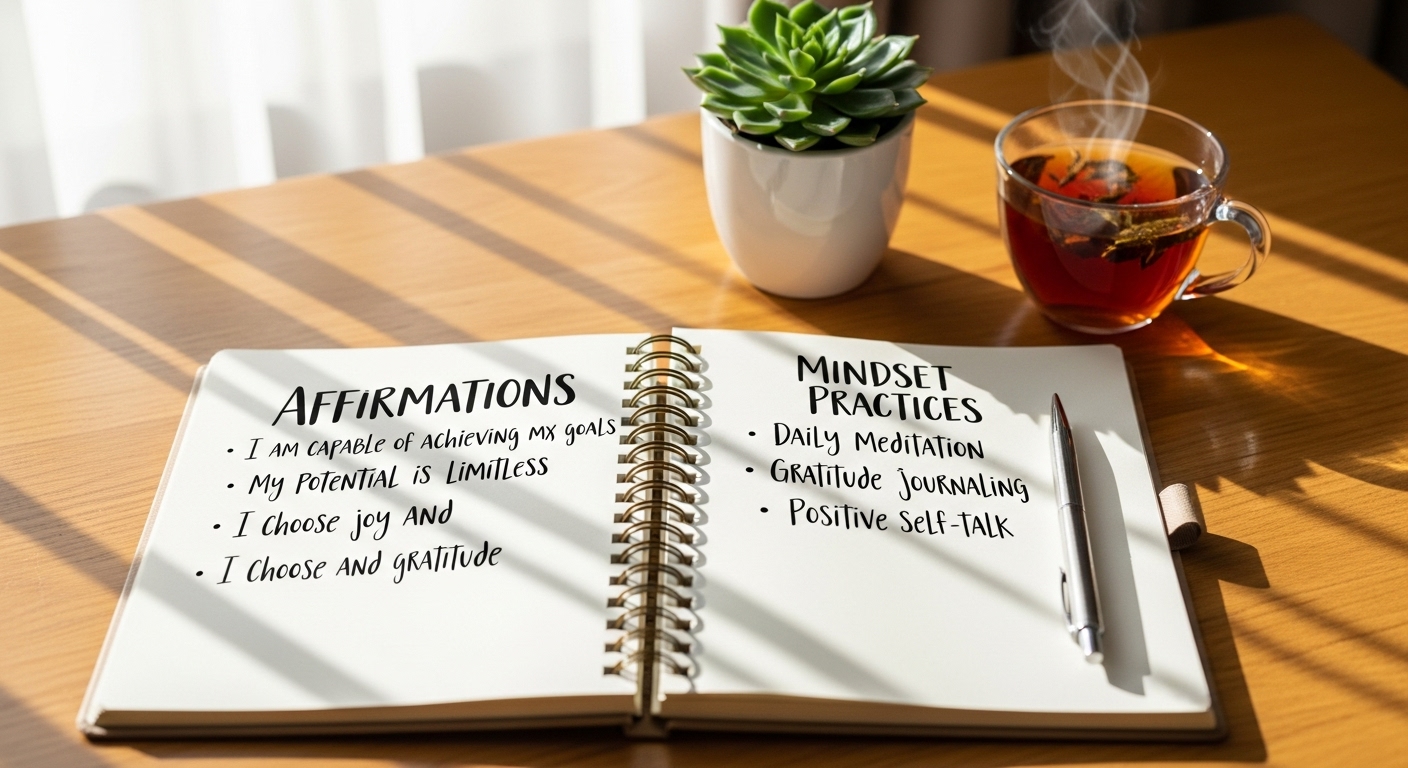
Negative self-talk is when your mind criticizes your body or yourself harshly — often without you even noticing. It can make you feel unworthy, insecure, or unhappy with your appearance.
But the good news is: you can change the way you talk to yourself.
🔍 What Negative Self-Talk Sounds Like:
- “I’m too fat/thin/short.”
- “My body isn’t good enough.”
- “I wish I looked like ___.”
- “I hate how this part of me looks.”
💡 How to Combat It:
- Notice it: The first step is to catch when you’re being self-critical. Awareness gives you power.
- Challenge it: Ask yourself, “Is this thought really true? Would I say this to a friend?” Usually, the answer is no.
- Replace it: Swap negative thoughts with kinder, more realistic ones. For example, instead of “I hate my legs,” say “My legs help me walk, run, and dance.”
- Practice daily affirmations: Use positive statements like “I am enough,” or “My body deserves love and care.”
- Be patient: Changing your inner voice takes time. Celebrate small wins!
🌟 Remember:
Your mind is powerful. Treat it like a friend, not an enemy. When you speak kindly to yourself, your self-love grows stronger every day.
🌟 Affirmations and Mindset Practices
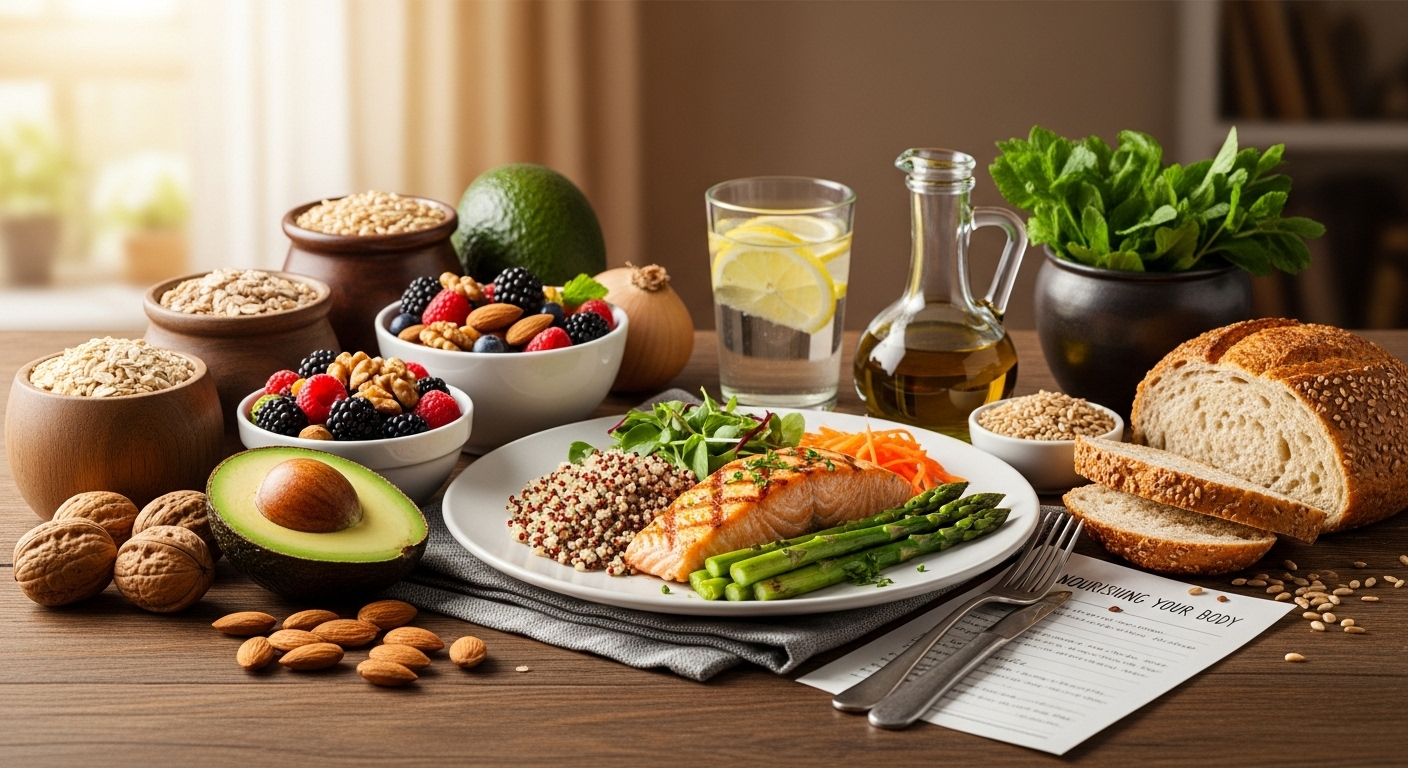
Building a loving relationship with your unique body starts with the thoughts you feed your mind. Affirmations and mindset exercises can help shift your focus from criticism to kindness.
🗣️ Positive Affirmations to Say Daily
- I am enough exactly as I am.
- My body is strong and capable.
- I deserve love and respect from myself and others.
- I honor my body’s unique beauty.
- I am grateful for all my body does for me.
- I choose kindness over criticism.
- I accept myself fully and completely.
🧘 Mindset Practices to Try
- Mirror Check-In: Look at yourself in the mirror and say one thing you appreciate about your body — it could be anything from your smile to your hands.
- Gratitude Journal: Each day, write down 3 things your body allowed you to do or experiences you’re thankful for.
- Mindful Breathing: When negative thoughts arise, take deep breaths and gently bring your attention back to the present moment.
- Self-Compassion Break: When feeling down, pause and say: “This is a moment of suffering. Suffering is part of life. May I be kind to myself in this moment.”
- Surround Yourself with Positivity: Follow social media accounts, read books, and spend time with people who encourage body love and acceptance.
💡 Remember:
These practices take time and patience. Be gentle with yourself as you build a habit of kindness and respect toward your body.
🥗 Nourishing Your Body
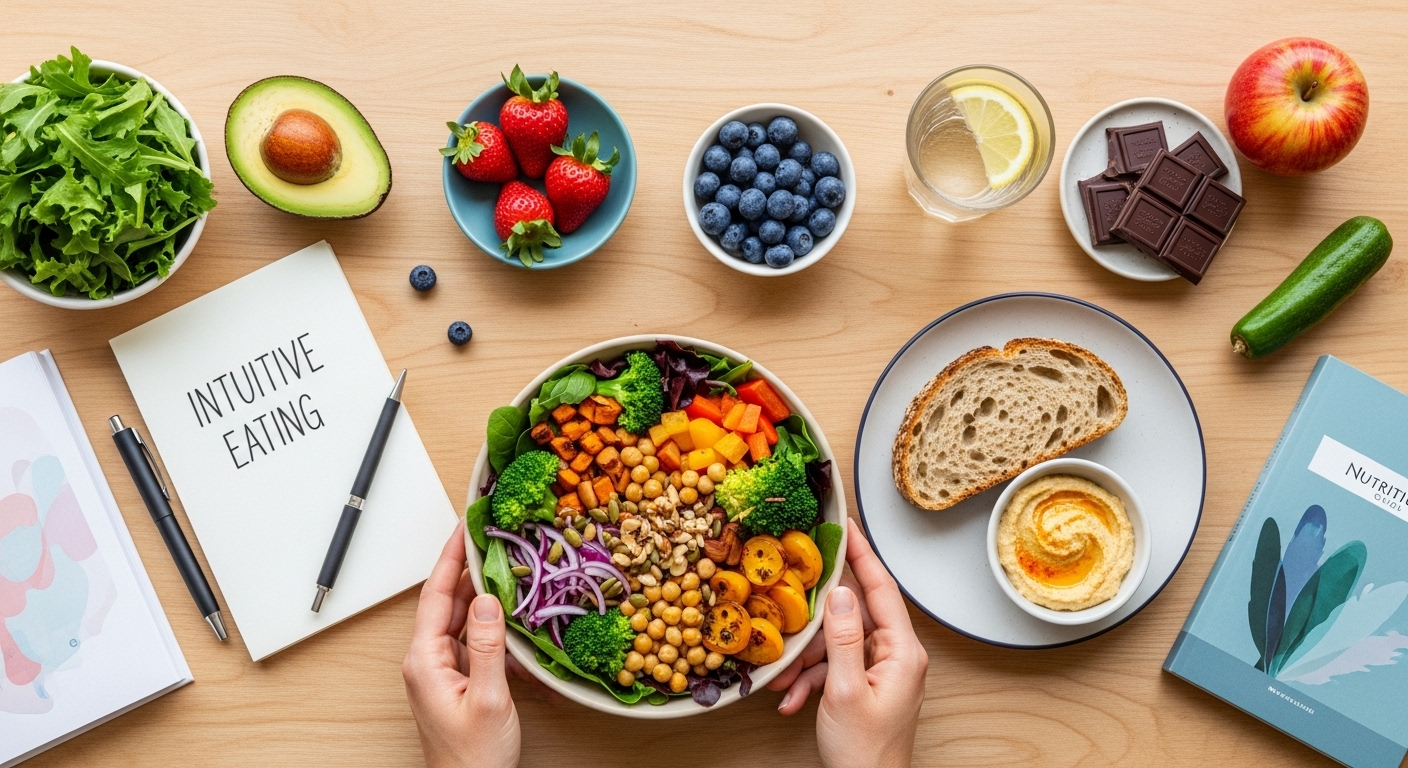
Loving your unique body means giving it the care and fuel it needs to thrive. Nourishing your body isn’t just about what you eat — it’s about how you treat your body with kindness and respect every day.
🍎 Healthy Eating with Love
- Choose foods that make you feel energized and happy, not just because they’re “good” or “bad.”
- Listen to your body’s hunger and fullness signals — eat mindfully, without guilt.
- Include a variety of fruits, vegetables, proteins, and whole grains to support your health.
- Remember, occasional treats are part of a balanced life and don’t mean you’re “failing.”
🚶 Movement That Feels Good
- Move your body in ways you enjoy — walking, dancing, stretching, yoga, or sports.
- Focus on how movement makes you feel, not on burning calories or changing shape.
- Celebrate the strength and flexibility your body offers.
💤 Rest and Recovery
- Prioritize good sleep to help your body heal and recharge.
- Give yourself permission to rest when needed without guilt.
- Practice relaxation techniques like deep breathing or meditation to reduce stress.
🧴 Gentle Care
- Treat your body with kindness — gentle skincare, massages, or simply taking time to notice and appreciate it.
- Avoid harsh criticism or punishment through extreme diets or exercise.
🌟 Remember:
Nourishing your body is an act of self-love. When you care for your body mindfully and kindly, you support your health, happiness, and confidence — exactly as you are.
🍽️ Intuitive Eating and Nutrition
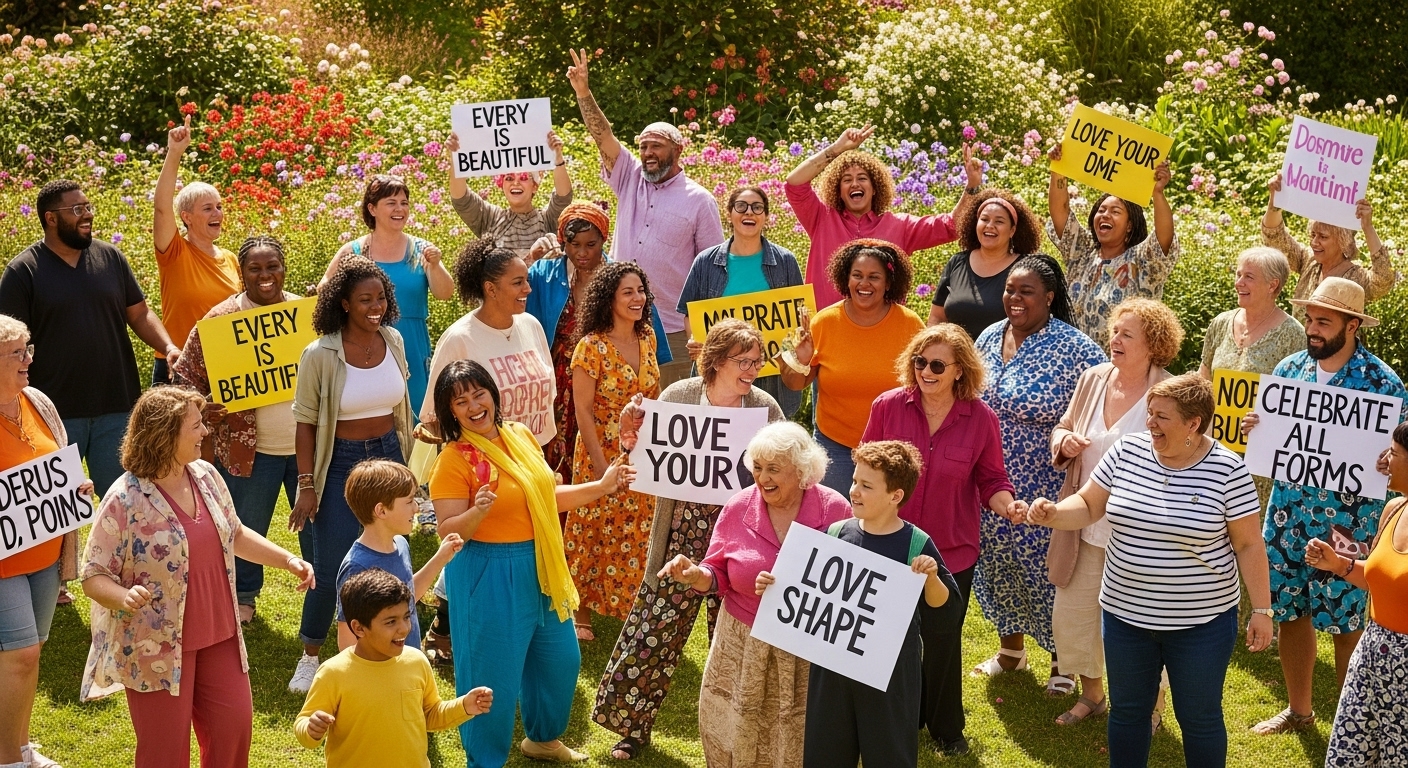
Intuitive eating is a way of caring for your body that focuses on listening to your natural hunger and fullness cues instead of following strict diets or food rules. It encourages a healthy, balanced relationship with food — one based on trust and kindness.
🌟 What Is Intuitive Eating?
- Trusting your body: Eat when you’re hungry, stop when you’re full.
- No “good” or “bad” foods: All foods can fit in a healthy diet without guilt.
- Enjoyment: Choose foods that taste good and make you feel good.
- Reject dieting: Avoid strict rules that cause stress or shame.
- Respect your body’s needs: Nourish yourself with a variety of foods that provide energy and nutrients.
🥦 Why It Matters:
- Helps you build a positive relationship with food and your body.
- Reduces emotional eating and guilt.
- Supports physical and mental health by promoting balance and satisfaction.
- Encourages mindfulness and presence during meals.
🛠️ Tips for Practicing Intuitive Eating:
- Pause before eating to check your hunger level.
- Eat slowly and savor each bite.
- Notice how different foods make you feel physically and emotionally.
- Allow yourself permission to eat all foods without judgment.
- Respect your body’s signals and needs, even if they change day-to-day.
🌿 Remember:
Intuitive eating is about tuning into your body’s wisdom and treating yourself with compassion. It’s a lifelong practice that helps you nourish your body and mind in a joyful, stress-free way.
💧 Hydration
Water is life’s simplest yet most powerful fuel. Drinking enough water helps your body:
- Stay energized
- Support healthy digestion
- Keep your skin glowing
💡 Tip: Carry a water bottle and add fruit slices or herbs for a refreshing twist.
💃 Joyful Movement
Movement isn’t punishment — it’s celebration! Find ways to move that feel good for you:
- Dance in your living room
- Take nature walks
- Stretch or do yoga
- Play with your kids or pets
💡 Tip: Focus on the fun — the fitness will follow naturally.
🌈 Celebrating All Body Types
Every body tells a unique story. Your worth isn’t measured by your shape, size, or weight — it’s reflected in your kindness, your laughter, your passions, and the way you show up for yourself and others.
- Appreciate the amazing things your body allows you to do every day.
- Surround yourself with people and media that celebrate diversity.
- Wear clothes that make you feel confident and comfortable.
- Speak kindly to yourself — your body listens.
💡 Tip: Celebrate your uniqueness every day. Remember, there’s no “ideal” body — only the one you’re living in and loving.
📖 Real Stories from Real People
Sometimes, the best way to feel inspired and less alone is by hearing from others who’ve walked a similar path. Real stories about loving and accepting unique bodies remind us that everyone’s journey is personal — full of struggles, growth, and triumphs.
🌟 Stories of Strength and Self-Love:
- Maya’s Journey to Acceptance: Maya always struggled with her body image growing up. She compared herself to models in magazines and felt she never measured up. Over time, Maya started following body-positive communities online and practicing daily affirmations. Slowly, she learned to appreciate her curves and scars as part of her story. Now, she shares her journey to help others feel empowered.
- Raj’s Shift from Criticism to Kindness: Raj spent years trying to change his body through extreme diets and workouts but was never satisfied. When he discovered body neutrality, he stopped focusing on how his body looked and started focusing on how it felt — strong, capable, and healthy. This mindset shift improved his mental health and helped him build a peaceful relationship with himself.
- Anita’s Celebration of Differences: Anita was born with a visible birthmark and faced many hurtful comments growing up. Instead of hiding it, she decided to embrace it as part of her unique beauty. She now advocates for diversity in beauty standards and inspires others to love their differences.
💬 What These Stories Teach Us:
- Loving your body is a journey, not a destination.
- Everyone has challenges, but acceptance brings peace.
- Sharing our stories helps build a supportive community.
- Your unique body tells a powerful story — and it’s worth celebrating.
🌈 Why Celebrate All Bodies?
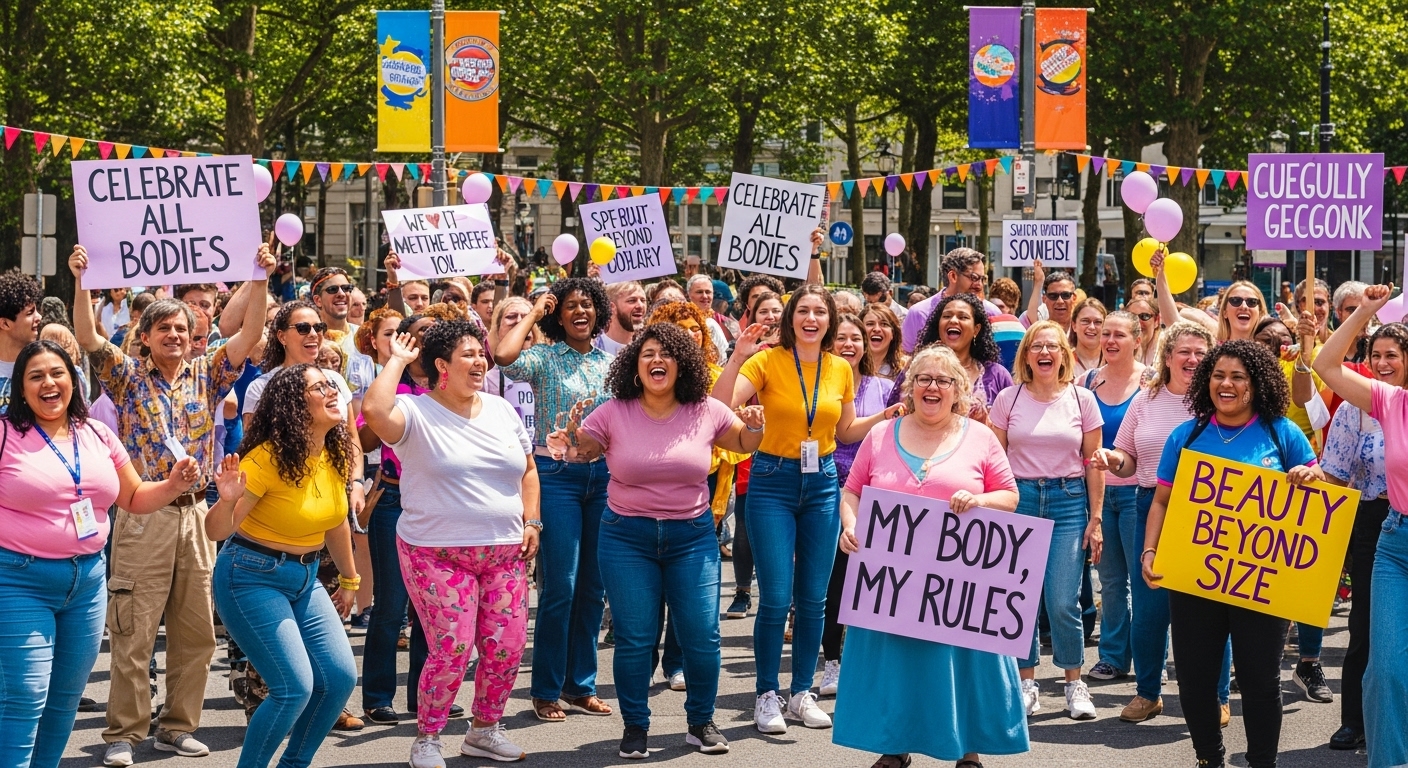
- Diversity is beautiful: Our differences make the world colorful and interesting.
- Breaks harmful stereotypes: Challenging narrow beauty standards helps everyone feel seen and valued.
- Promotes inclusion and kindness: When all bodies are celebrated, we create a more loving and accepting community.
- Boosts confidence: Seeing diverse bodies represented helps people appreciate their own unique shape.
💖 Ways to Celebrate All Body Types:
- Support inclusive brands and media that show real, diverse people.
- Compliment and respect people of all shapes and sizes.
- Challenge negative comments or stereotypes about bodies when you hear them.
- Focus on what your body can do rather than just how it looks.
- Share stories and images that uplift body diversity.
🌟 Remember:
Your body is part of this beautiful, diverse world. Loving your unique body and celebrating others’ bodies helps everyone feel accepted and confident — exactly as they are.
📖 Real Stories from Real People

Sometimes, the best way to feel inspired and less alone is by hearing from others who’ve walked a similar path. Real stories about loving and accepting unique bodies remind us that everyone’s journey is personal — full of struggles, growth, and triumphs.
🌟 Stories of Strength and Self-Love:
-
Maya’s Journey to Acceptance:
Maya always struggled with her body image growing up. She compared herself to models in magazines and felt she never measured up. Over time, Maya started following body-positive communities online and practicing daily affirmations. Slowly, she learned to appreciate her curves and scars as part of her story. Now, she shares her journey to help others feel empowered. -
Raj’s Shift from Criticism to Kindness:
Raj spent years trying to change his body through extreme diets and workouts but was never satisfied. When he discovered body neutrality, he stopped focusing on how his body looked and started focusing on how it felt — strong, capable, and healthy. This mindset shift improved his mental health and helped him build a peaceful relationship with himself. -
Anita’s Celebration of Differences:
Anita was born with a visible birthmark and faced many hurtful comments growing up. Instead of hiding it, she decided to embrace it as part of her unique beauty. She now advocates for diversity in beauty standards and inspires others to love their differences.
💬 What These Stories Teach Us:
- Loving your body is a journey, not a destination.
- Everyone has challenges, but acceptance brings peace.
- Sharing our stories helps build a supportive community.
- Your unique body tells a powerful story — and it’s worth celebrating.
📺👗 Representation in Media and Fashion
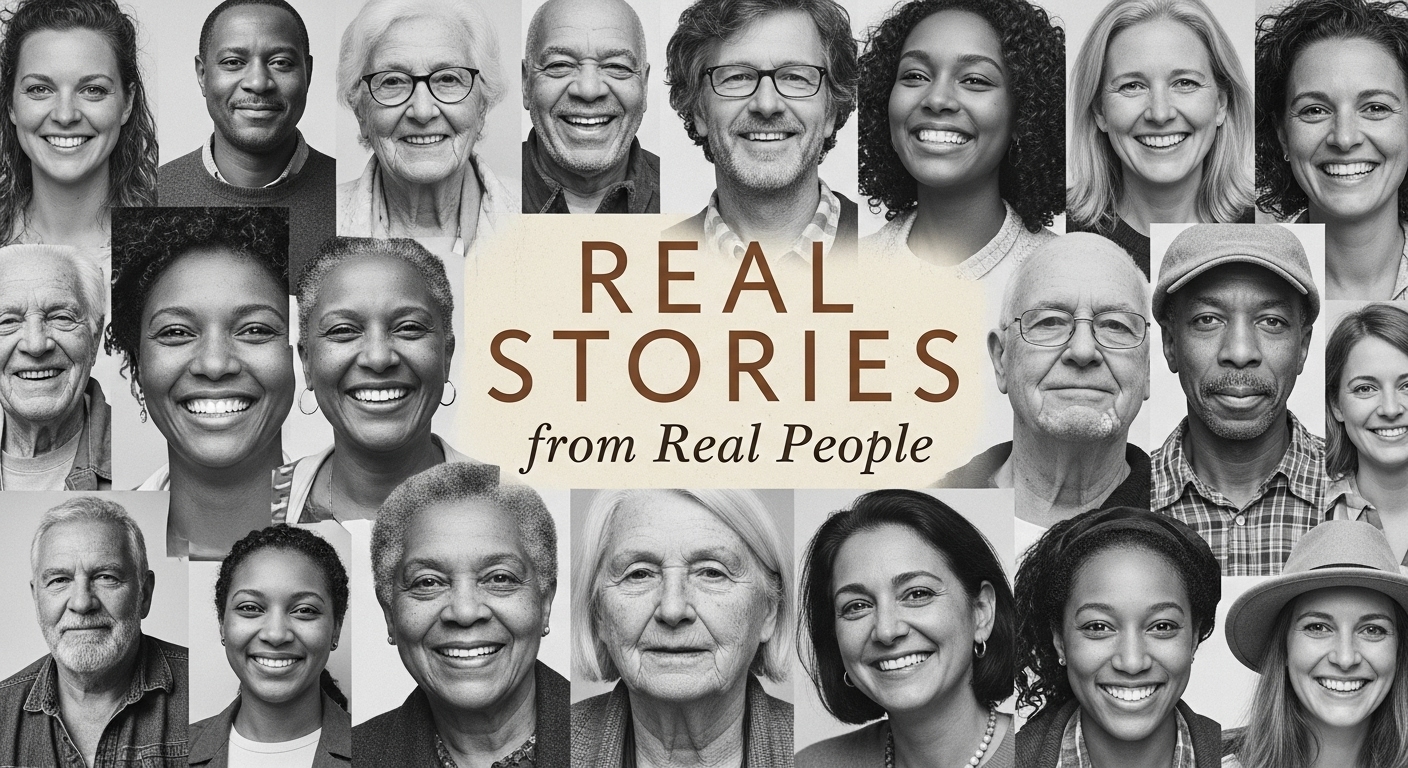
Representation matters — especially when it comes to how bodies are shown in media and fashion. Seeing a wide variety of body types, skin tones, ages, and abilities helps everyone feel included, accepted, and valued.
🌟 Why Representation Is Important:
- Shapes perceptions of beauty: When media and fashion showcase diverse bodies, they expand what society considers beautiful and normal.
- Boosts self-esteem: People who see bodies like theirs represented feel more confident and validated.
- Challenges stereotypes: Breaking the mold helps reduce stigma and discrimination based on appearance.
- Creates role models: Diverse representation offers relatable figures for people to look up to.
👚 Progress and Challenges:
More brands and media outlets are now including models of different sizes, ethnicities, genders, and abilities.
However, there is still work to do to achieve full inclusivity and avoid tokenism — representation should be authentic and respectful.
Representation also means showing bodies in everyday contexts, not just glamorous or idealized settings.
💡 How You Can Support Better Representation:
- Follow and support inclusive brands and media creators.
- Share and celebrate diverse images and stories on social media.
- Speak up against unrealistic or harmful portrayals.
- Encourage media literacy — question what you see and seek diverse perspectives.
🌈 Remember:
When media and fashion represent all bodies, it helps build a world where everyone’s unique beauty is seen, appreciated, and celebrated.
👗✨ Fashion & Confidence
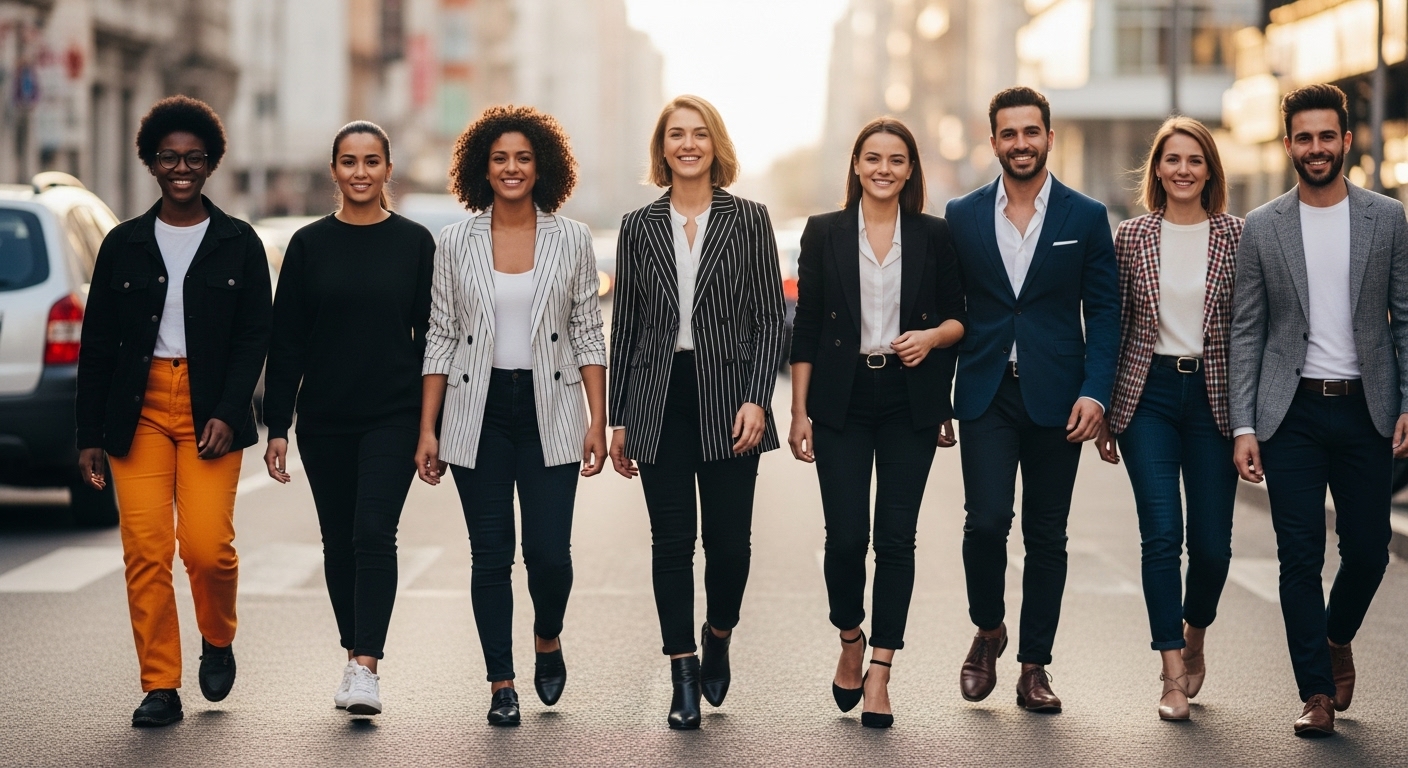
Fashion isn’t just about clothes — it’s a powerful way to express who you are and celebrate your unique body. When you dress in a way that feels good to you, it can boost your confidence and help you feel comfortable in your own skin.
💃 How Fashion Boosts Confidence:
- Self-expression: Your style is your personal statement. It shows the world your personality, mood, and creativity.
- Comfort matters: Wearing clothes that fit well and feel good lets you move freely and enjoy your day.
- Highlight your favorite features: Fashion can help you showcase the parts of your body you love, building self-appreciation.
- Experiment and have fun: Trying new styles or colors can lift your spirits and remind you that fashion is for joy, not rules.
👚 Tips for Dressing Confidently:
- Choose clothes that make you feel good — not what you think others expect.
- Find the right fit for your body shape; tailoring can be a game-changer.
- Don’t be afraid of colors and patterns that brighten your mood.
- Accessorize in ways that make you smile — scarves, jewelry, hats, or shoes.
- Remember: confidence comes from within, and your clothes are just one way to show it.
🌟 Remember:
Fashion is for everyone — no matter your size, shape, or style. When you embrace your unique body through fashion, you celebrate yourself and inspire others to do the same.
👗✨ Dressing for Your Body, Not the Trends
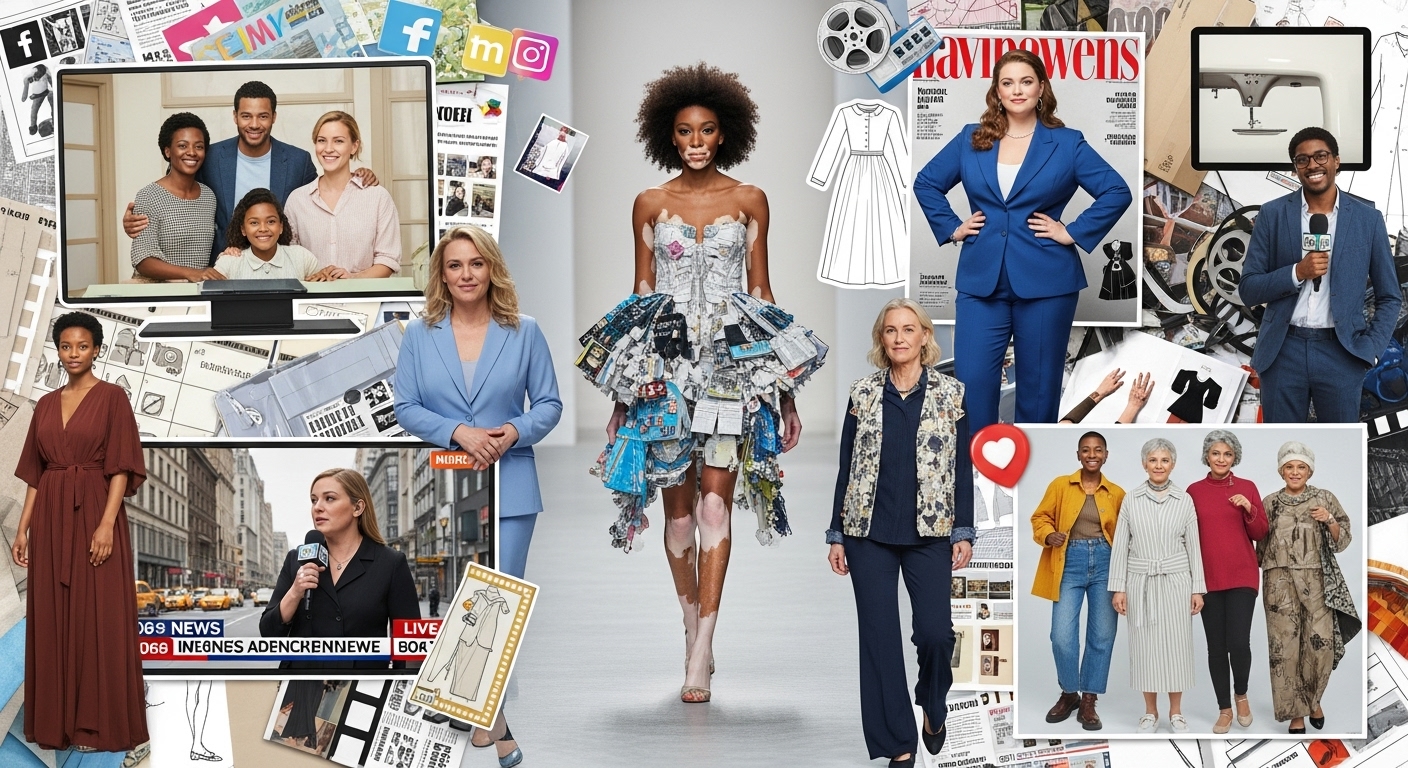
Fashion trends come and go, but what truly matters is dressing in a way that makes you feel comfortable, confident, and happy in your own body. When you choose clothes that suit your unique shape and personality — rather than just following what’s popular — you celebrate your individuality.
🌟 Why Dressing for Your Body Matters:
- Enhances comfort: Clothes that fit well and flatter your body let you move freely and feel at ease.
- Boosts confidence: When you look and feel good, your self-esteem shines naturally.
- Reflects your style: Your clothes should express you, not someone else’s idea of fashion.
- Saves time and money: Investing in pieces that truly work for you means less frustration and fewer returns.
💡 Tips to Dress for Your Body, Not the Trends:
- Know your body shape: Learn which cuts and styles highlight your favorite features.
- Focus on fit: Tailoring can transform how clothes feel and look.
- Choose colors and fabrics you love: Comfort and personal taste come first.
- Mix classic staples with occasional trendy pieces: Keep your wardrobe versatile but true to you.
- Listen to your feelings: If a trend doesn’t feel right, it’s okay to skip it.
🌈 Remember:
Trends are temporary, but your unique style is forever. Dressing for your body — not the trends — is an act of self-love that helps you feel authentic and confident every day.
💃✨ Tips to Boost Body Confidence Through Style

- Wear What Makes You Feel Good: Choose outfits that make you smile and feel comfortable. When you love what you’re wearing, it shows!
- Highlight Your Favorite Features: Focus on clothing that draws attention to parts of your body you love — whether it’s your waist, legs, neckline, or smile.
- Choose the Right Fit: Ill-fitting clothes can drag down your confidence. Find sizes and cuts that fit well, and consider tailoring for a perfect fit.
- Play with Colors and Patterns: Bright colors and fun patterns can boost your mood and make your outfit stand out. Don’t be afraid to experiment!
- Invest in Comfortable Fabrics: Soft, breathable fabrics keep you feeling good all day long and help you move with ease.
- Accessorize to Express Yourself: Scarves, jewelry, hats, or shoes can add personality and flair to your outfit and make you feel uniquely you.
- Practice Good Posture: Standing tall with your shoulders back enhances your confidence and helps your clothes look their best.
- Mix and Match: Create different looks from a few versatile pieces. This helps you discover styles that truly suit you.
- Avoid Comparing Yourself: Remember, style is personal. Don’t compare your look to others — focus on what makes you feel amazing.
- Be Patient and Have Fun: Building confidence through style takes time. Enjoy the process of exploring and discovering what feels right.
🌟 Remember:
Your style is a reflection of your unique personality and beauty. Dressing with confidence is a daily celebration of you!
🏃♀️💖 Fitness Without Pressure
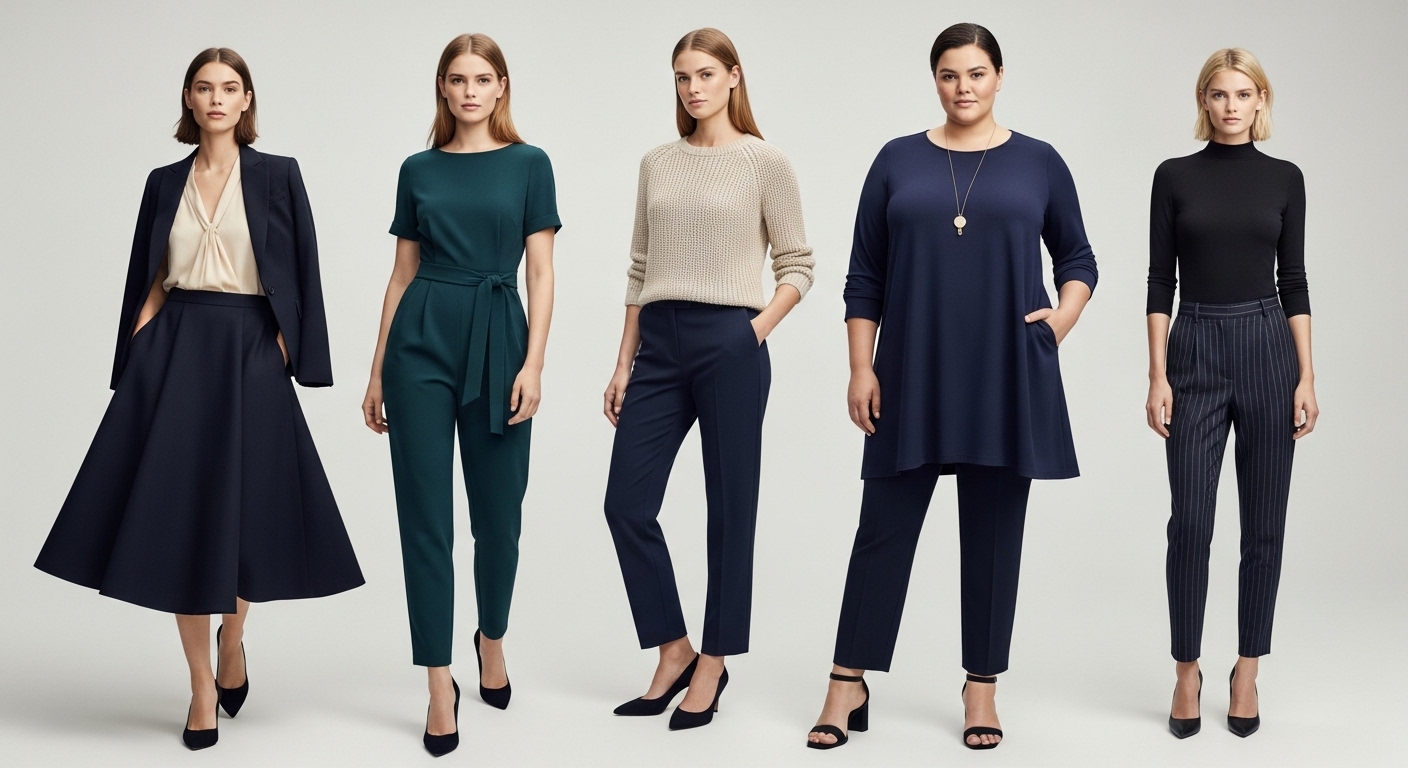
Fitness isn’t about punishment, perfection, or changing your body to fit someone else’s idea of beauty. It’s about moving your body in ways that feel good, keep you healthy, and bring you joy — all without pressure or shame.
🌟 What Fitness Without Pressure Means:
- Listening to your body’s needs and limits.
- Choosing activities you enjoy, not ones you feel forced to do.
- Celebrating small wins, like more energy or better mood, rather than just physical changes.
- Ignoring “shoulds” and “musts” around exercise.
- Being patient with yourself on tough days.
💡 Tips to Embrace Fitness Joyfully:
- Try different activities — dancing, swimming, yoga, walking — until you find what you love.
- Set goals around fun and wellness, not appearance.
- Move with friends or in groups for support and motivation.
- Celebrate how your body feels after moving, like feeling stronger or more relaxed.
- Rest when needed; recovery is part of fitness too.
🌈 Remember:
Your fitness journey is personal. It’s about honoring your unique body, having fun, and feeling good — no pressure, no judgment.
🎉💃 Movement as Celebration, Not Punishment
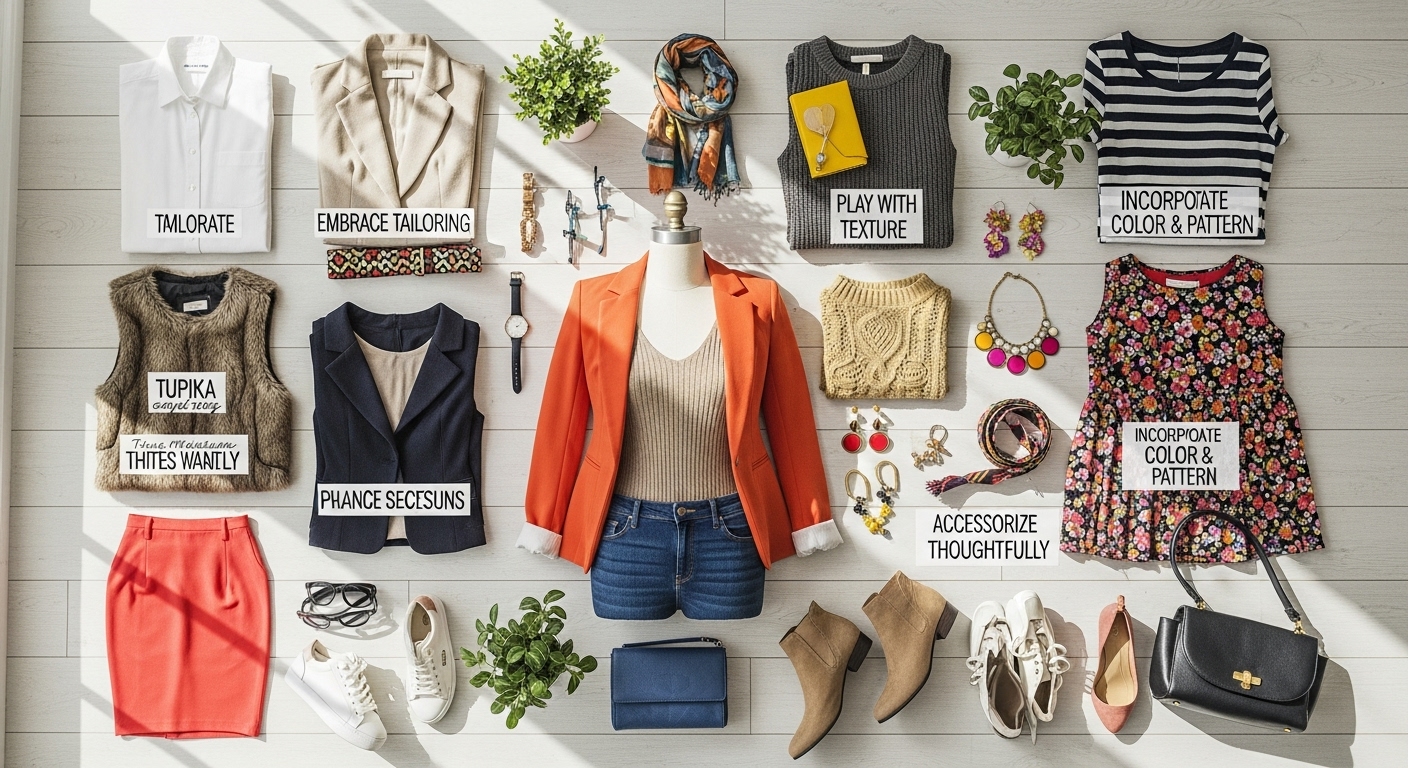
Exercise isn’t something you have to “earn” or “do to fix your body.” Instead, movement can be a joyful celebration of what your body can do — a way to express gratitude, freedom, and strength.
🌟 What Does It Mean to Move as Celebration?
- Moving because it feels good, not because you feel guilty.
- Choosing activities that bring you happiness — dancing, walking in nature, stretching, or playing a sport.
- Listening to your body’s signals, resting when needed, and honoring your limits.
- Focusing on the pleasure of movement rather than on burning calories or changing shape.
💡 How to Shift Your Mindset:
- Think of movement as a gift to yourself, not a punishment for eating or resting.
- Celebrate small victories, like how moving lifts your mood or helps you sleep better.
- Create a playlist of your favorite music to make movement fun.
- Invite friends or family to join you — movement is often more joyful together.
- Try new activities regularly to keep things fresh and exciting.
🌈 Remember:
Your body is amazing and deserves movement that makes you smile — not stress. When you move to celebrate, you build a loving connection with your unique body every day.
🎽💖 Enjoyable Workouts for Every Body
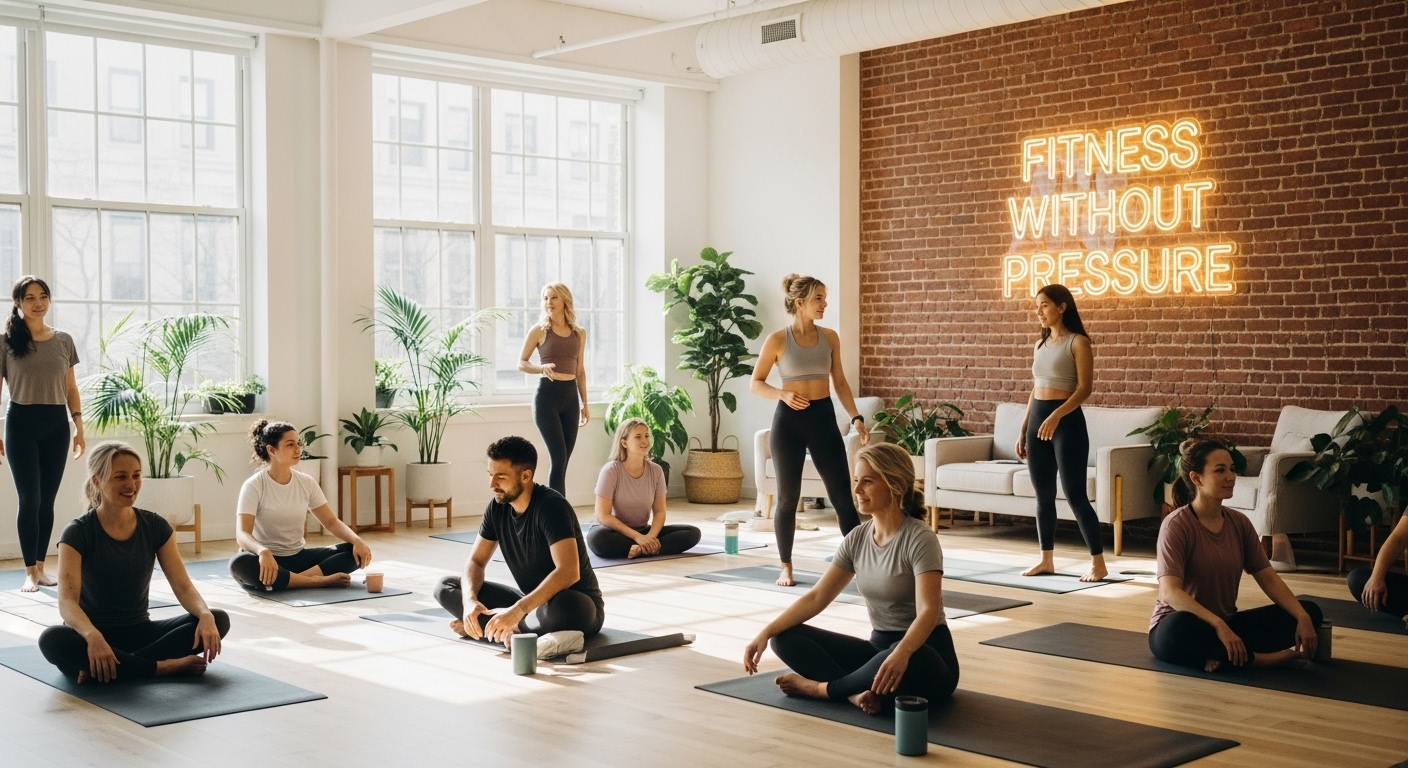
Fitness should be fun, accessible, and tailored to you — your preferences, needs, and your unique body. The best workout is one that brings you joy and makes you feel good, no matter your shape, size, or fitness level.
🏃♀️ Workout Ideas for Everyone:
- Walking: Simple, low-impact, and easy to fit into your day. Explore parks, your neighborhood, or new trails.
- Dancing: Move to your favorite music at home or join a dance class — it’s a great way to boost mood and burn calories joyfully.
- Yoga & Stretching: Improves flexibility, strength, and mindfulness. Adapt poses to suit your body and needs.
- Swimming: Gentle on joints and great for full-body movement.
- Strength Training: Using body weight, resistance bands, or light weights to build muscle and boost metabolism.
- Gardening or Active Hobbies: Activities like gardening, playing with pets, or recreational sports keep you moving in enjoyable ways.
💡 Tips to Make Workouts Enjoyable:
- Choose activities that excite you, not what you “should” do.
- Listen to your body — modify or rest when needed.
- Celebrate small wins like improved mood or energy.
- Mix it up to keep things interesting.
- Invite a friend for motivation and fun.
🌟 Remember:
There’s no “perfect” workout — only the one that feels right for you. When movement is enjoyable, it becomes a sustainable and loving part of your life.
💔🌈 Healing From Body Shaming
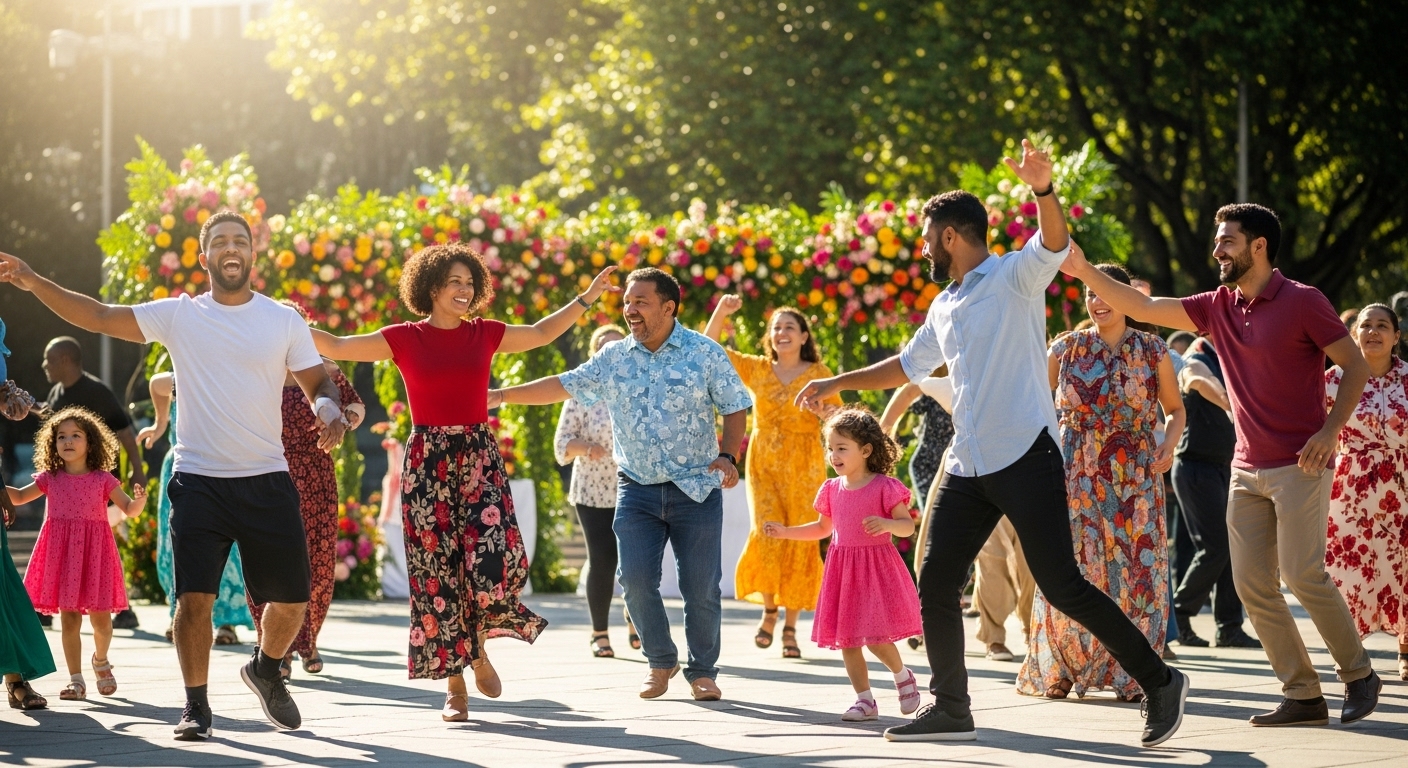
Body shaming — whether from others or yourself — can leave deep emotional wounds. It can make you feel unworthy, ashamed, or disconnected from your own body. But healing is possible, and you deserve to reclaim love and respect for yourself.
✨ What Is Body Shaming?
- Negative comments or judgments about someone’s body shape, size, or appearance.
- It can come from strangers, friends, family, or even your own inner critic.
🌱 Steps to Heal From Body Shaming:
- Acknowledge Your Feelings: It’s okay to feel hurt or angry. Recognize these feelings without judgment.
- Challenge Negative Messages: Question the truth behind shaming comments. Remember, no one has the right to define your worth.
- Practice Self-Compassion: Speak kindly to yourself and remind yourself that your value goes beyond appearance.
- Surround Yourself With Support: Seek friends, communities, or professionals who uplift and accept you as you are.
- Focus on Your Strengths: Celebrate what your body can do, not just how it looks.
- Set Boundaries: Protect your mental space by limiting exposure to harmful people or media.
💖 Remember:
Healing is a journey — sometimes slow, sometimes with setbacks — but every step forward is a victory. Your body deserves love, kindness, and respect, always.
🚧💬 Setting Boundaries with Others
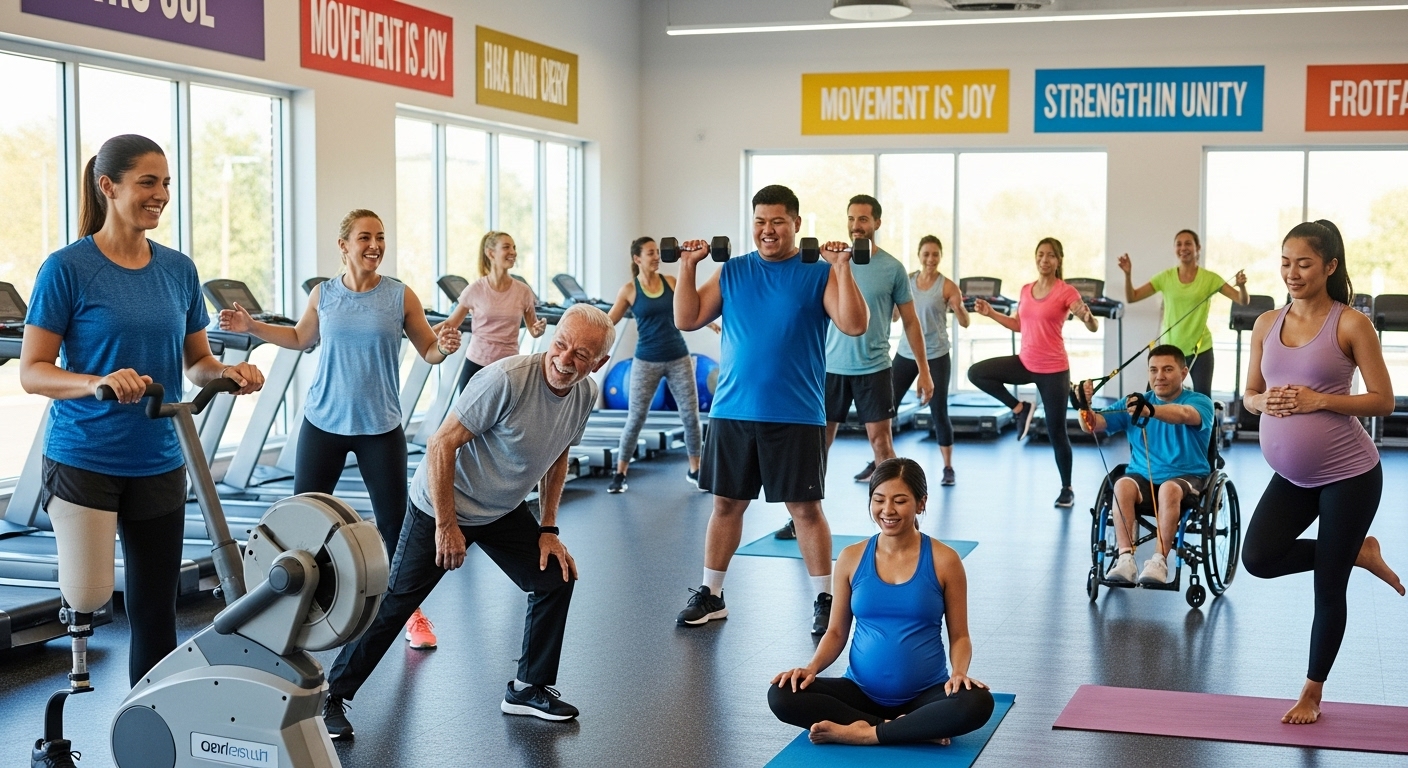
Protecting your mental and emotional well-being is key to loving your unique body. Sometimes, that means setting clear boundaries with people who make negative comments or disrespect your body and feelings.
🌟 Why Boundaries Matter:
- They help you maintain self-respect and emotional safety.
- Boundaries prevent others from making you feel ashamed or uncomfortable about your body.
- Setting limits teaches people how you want to be treated.
🛠️ How to Set Healthy Boundaries:
- Be Clear and Direct: Politely but firmly tell others when a comment or behavior isn’t okay. For example, “I’d appreciate if we don’t talk about my body.”
- Use “I” Statements: Express your feelings without blaming. For example, “I feel hurt when comments are made about my appearance.”
- Limit Exposure: Spend less time with people who consistently disrespect your boundaries.
- Practice Saying No: It’s okay to refuse conversations or situations that make you uncomfortable.
- Seek Support: Talk to friends or professionals who respect your boundaries and encourage your self-love.
🌈 Remember:
Setting boundaries is an act of self-love and empowerment. You deserve to be treated with kindness and respect — always.
🌱💖 Inner Child Healing and Self-Compassion
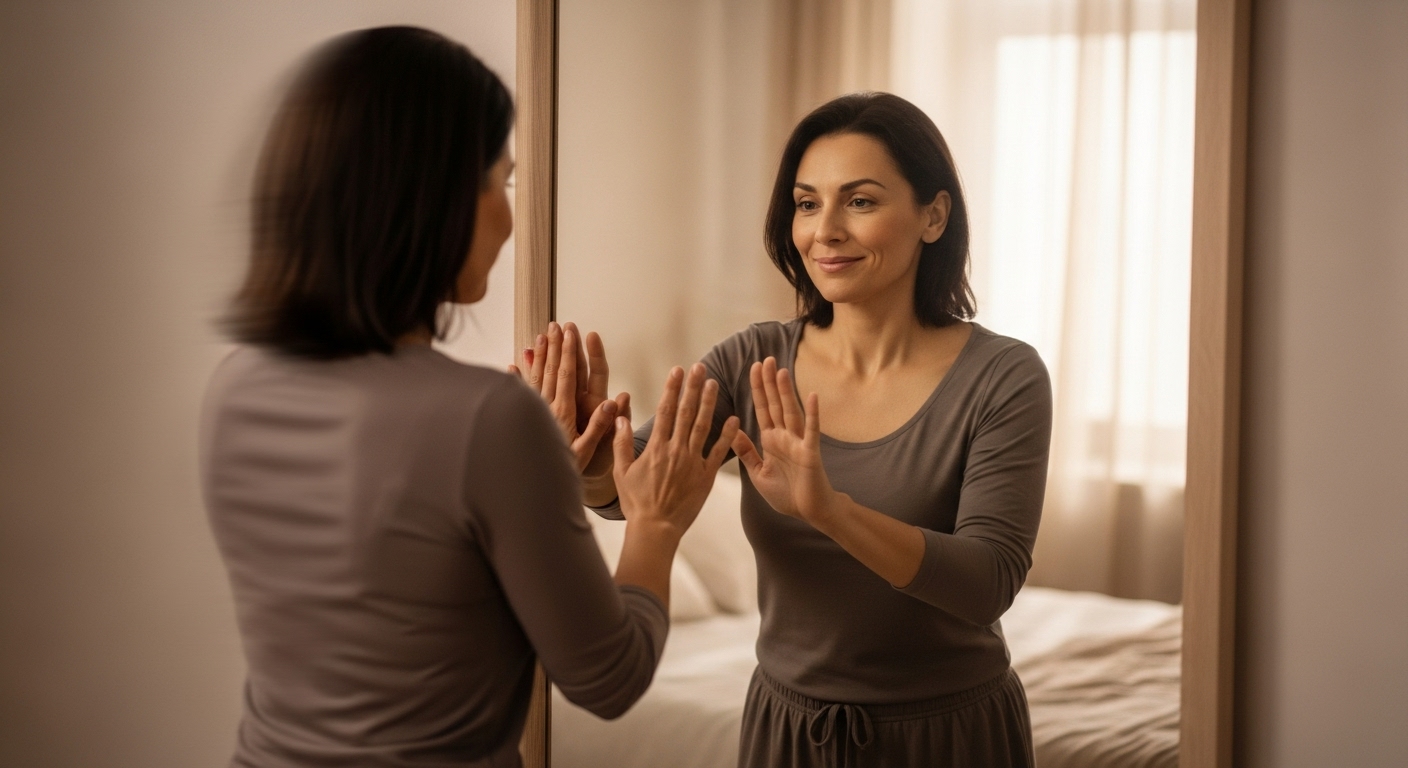
Our relationship with our body often starts in childhood. Sometimes, old wounds or negative messages from that time can still affect how we feel about ourselves today. Inner child healing helps us reconnect with that younger part of ourselves with kindness and care.
🌟 What Is Inner Child Healing?
It’s a process of recognizing, comforting, and nurturing the vulnerable, hurt, or neglected part of yourself from childhood.
This healing allows you to release old pain and rebuild a loving relationship with your body and self.
🤗 Why Self-Compassion Matters
Self-compassion means treating yourself with the same kindness and understanding you’d offer a dear friend.
It helps soothe feelings of shame, self-criticism, or unworthiness.
When you’re gentle with yourself, healing and growth become possible.
🛠️ How to Practice Inner Child Healing and Self-Compassion:
- Acknowledge Your Inner Child: Spend quiet moments connecting with your younger self. Imagine offering them love and reassurance.
- Write a Letter to Your Inner Child: Express understanding, forgiveness, and encouragement to that part of you.
- Practice Kind Self-Talk: Replace harsh criticism with comforting and supportive words.
- Use Mindful Breathing or Meditation: Focus on sending warmth and care to your body and emotions.
- Seek Support if Needed: Therapists or support groups can guide you through deeper healing.
🌈 Remember:
Healing your inner child and practicing self-compassion open the door to truly loving your unique body — embracing all its stories, strengths, and beauty.
🌟📲 Curating Your Feed for Inspiration
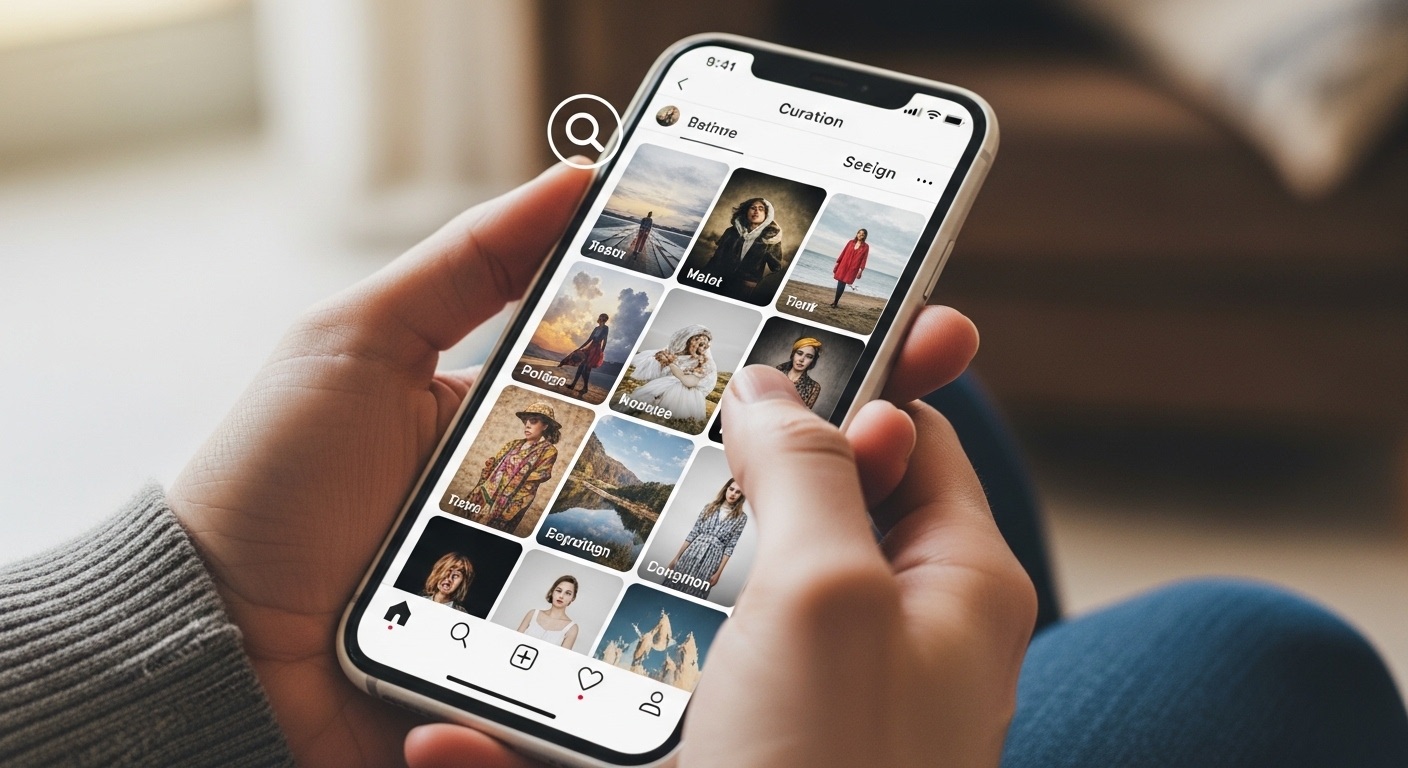
Your social media feed can either uplift your spirit or bring you down. Choosing what and who you follow plays a big role in how you feel about your body and yourself.
🛠️ How to Curate a Positive, Inspiring Feed:
- Follow Body-Positive Creators: Look for influencers and communities that celebrate all body types, promote self-love, and share real, unfiltered stories.
- Unfollow or Mute Negative Accounts: If an account makes you feel insecure, anxious, or unhappy about your body, it’s okay to unfollow or mute it — your mental health comes first.
- Add Variety: Include a mix of health, fitness, art, and lifestyle accounts that inspire you beyond just appearance.
- Support Diversity: Follow people of different sizes, ages, ethnicities, and abilities to broaden your view of beauty.
- Engage Positively: Comment kind words and share uplifting posts to build a supportive community.
- Use Features Mindfully: Set time limits or reminders to avoid excessive scrolling that can lead to negative feelings.
🌈 Why It Matters:
A curated feed filled with inspiration and kindness helps you focus on loving your unique body, boosting your confidence, and enjoying social media in a healthy way.
🚫🔄 Detoxing from Comparison Culture

In today’s world, it’s easy to fall into the trap of comparing ourselves to others — especially on social media. But constant comparison can harm your self-esteem and make it harder to love your unique body.
🌟 Why Detox from Comparison?
- Comparison often focuses on unrealistic, edited, or selective images.
- It can create feelings of inadequacy, jealousy, and self-doubt.
- Detoxing helps you reconnect with your own worth and appreciate your body’s unique beauty.
🛠️ How to Detox from Comparison Culture:
- Limit Social Media Use: Take breaks or set specific times for social media to avoid endless scrolling.
- Practice Gratitude: Focus daily on what you love and appreciate about your own body and life.
- Shift Focus Inward: Instead of comparing, reflect on your personal growth and strengths.
- Surround Yourself with Support: Engage with people and communities that celebrate diversity and body positivity.
- Replace Comparison with Inspiration: Let others’ stories motivate you rather than make you feel less.
- Challenge Negative Thoughts: When you catch yourself comparing, remind yourself that everyone’s journey is different and worthy.
🌈 Remember:
Your body is unique and beautiful just as it is. Detoxing from comparison frees you to embrace your own path with confidence and kindness.
🌟📲 Curating Your Feed for Inspiration
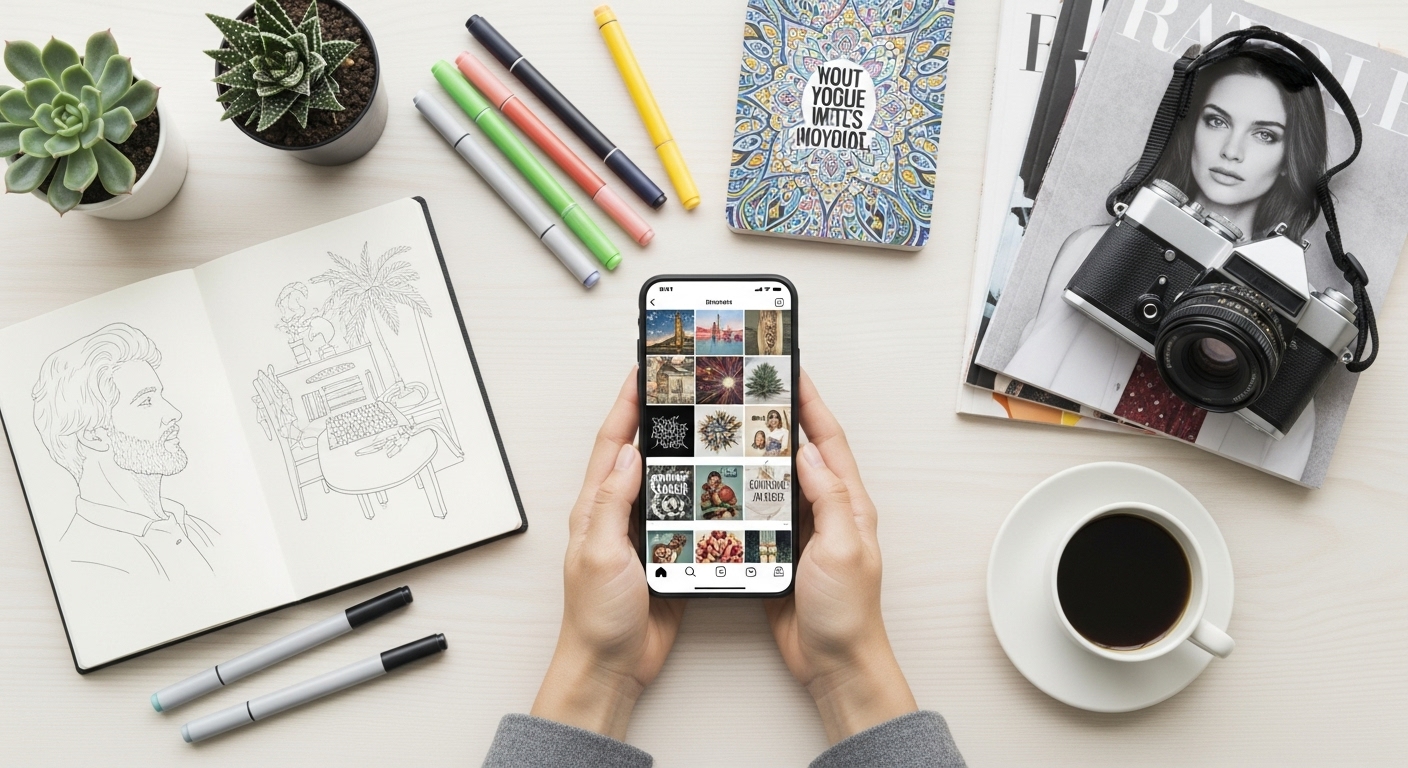
Your social media feed is like a personal sanctuary—it can either uplift your spirit or drain your energy. By intentionally choosing who and what you follow, you shape a space that nurtures self-love and confidence.
🛠️ How to Curate a Positive, Inspiring Feed
- • Follow Body-Positive Creators: Seek influencers who celebrate all bodies, share unfiltered stories, and reject unrealistic beauty standards.
- • Unfollow or Mute Toxicity: If an account triggers insecurity or comparison, mute it—no guilt. Your mental health is non-negotiable.
- • Diversify Your Feed: Mix in fitness, art, humor, and activism. Beauty isn’t just about appearance—it’s about joy and purpose.
- • Amplify Marginalized Voices: Follow creators of different sizes, ages, ethnicities, and abilities to redefine what "beauty" means.
- • Engage with Kindness: Comment support, share uplifting posts, and build a community that roots for each other.
- • Set Boundaries: Use app timers or "Do Not Disturb" modes to prevent mindless scrolling.
🌈
Why It Matters: A thoughtfully curated feed helps you see yourself—and the world—with more compassion, confidence, and joy. Social media should inspire, not diminish, you.
🌍🤝 Inclusivity Matters
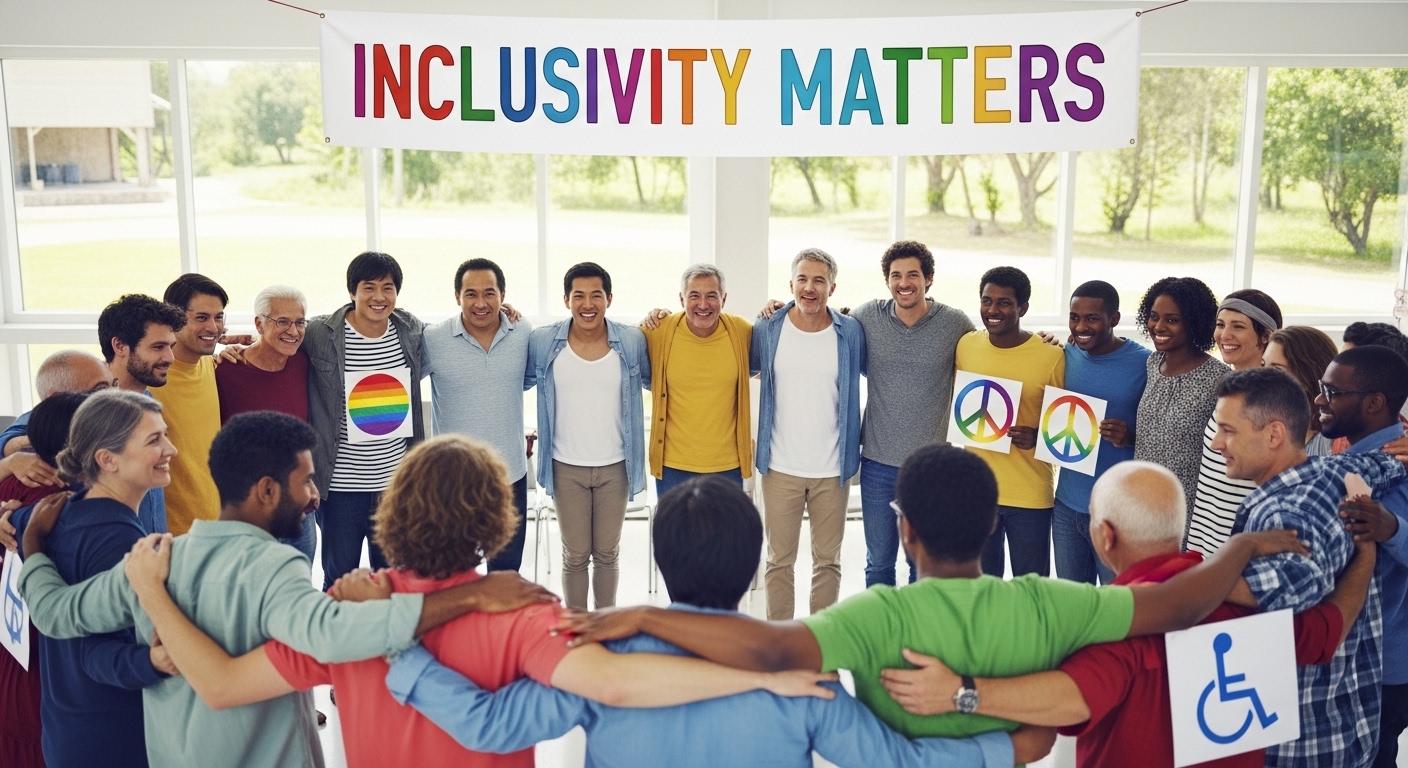
True body love isn’t just about your body—it’s about embracing every body, unconditionally. Inclusivity weaves a world where all sizes, shapes, colors, ages, and abilities are celebrated without exception.
🌟 Why Inclusivity Changes Everything
- • Shatters stereotypes that fuel discrimination and shame.
- • Demands diversity in media, healthcare, fashion, and public spaces.
- • Builds communities where belonging isn’t earned—it’s inherent.
- • Gives permission to take up space unapologetically.
💡 How to Be an Inclusion Ally
- ◦ Amplify marginalized voices—share their stories and credit their work.
- ◦ Vote with your wallet: Support brands that showcase real diversity (not just tokenism).
- ◦ Listen first. Center others’ experiences over your assumptions.
- ◦ Call out exclusion gently but firmly—in group chats, workplaces, and families.
- ◦ Design inclusively: Use alt text, inclusive language, and accessible spaces.
🌈
This is how we change culture:
By refusing to settle for a world that celebrates some bodies and tolerates others. Every body deserves a love letter.
🌍✨ Body Liberation for Every Body
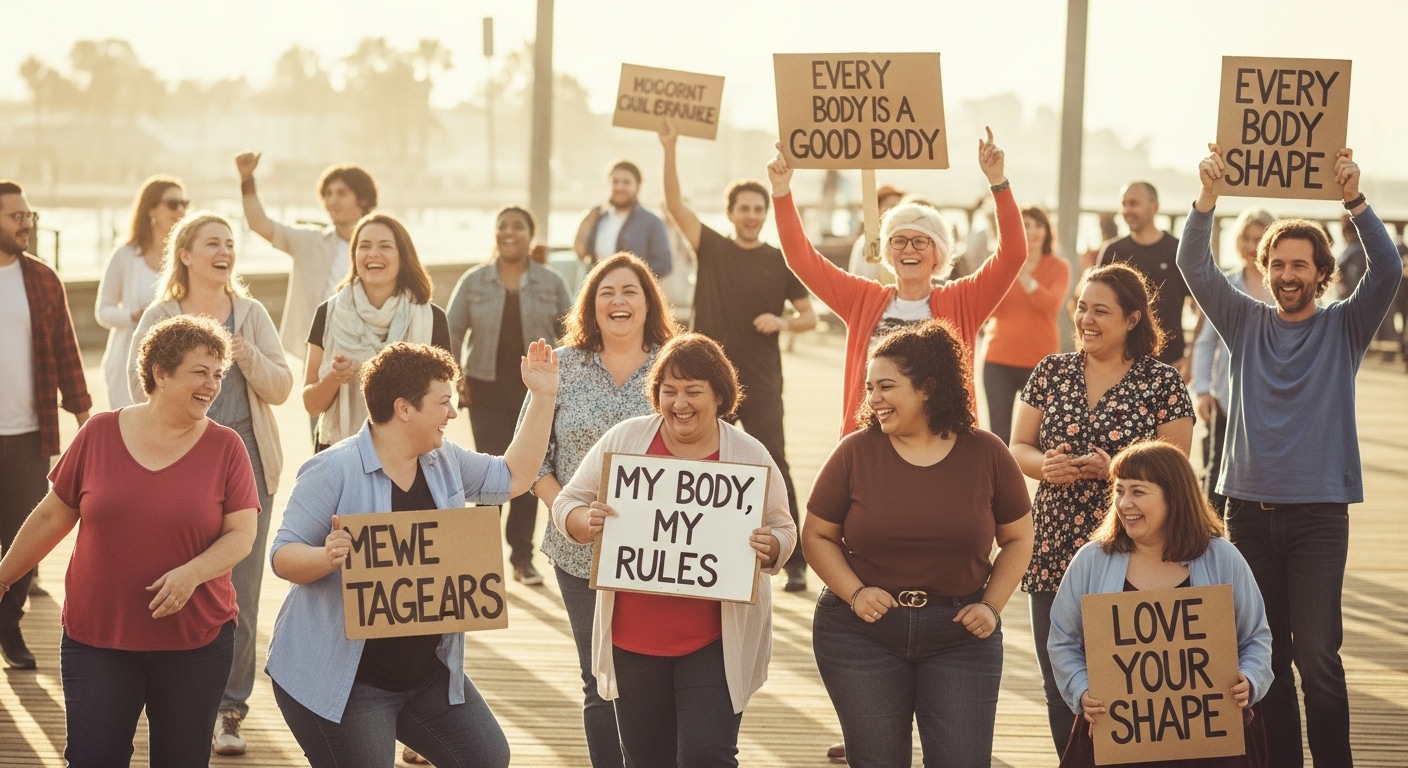
True body positivity must be intersectional—it's not just about size acceptance, but dismantling all systems that dictate which bodies are valued. Here's how we can expand the movement to truly include everyone.
✊🏽 Racial Equity in Body Acceptance
- • Decenter Eurocentric beauty by celebrating features like dark skin, textured hair, and culturally specific beauty marks
- • Support POC-led movements (@theconsciouskid, @mynameisjessamyn) addressing how racism intersects with body shaming
- • Confront colorism in media, families, and communities—preference for lighter skin harms us all
⚧ Gender-Inclusive Body Freedom
- • Reject binary beauty standards—trans, non-binary, and gender-expansive bodies are inherently worthy
- • Challenge toxic masculinity that shames men for "short" height, "small" muscles, or hair loss
- • Amplify LGBTQ+ advocates like @alokvmenon discussing how gender liberation ties to body acceptance
♿ Disability Justice & Body Autonomy
- • Demand disability visibility in body positivity spaces (follow @disabled_eliza, @therollingexplorer)
- • Advocate for accessibility in fashion (adaptive clothing), media (image descriptions), and public spaces
- • Reject inspiration porn—disabled people deserve respect, not patronizing "inspiration"
💡 Your Inclusive Action Plan
- ✓ Center marginalized voices in conversations about body image
- ✓ Examine your privilege—how does your identity shape your body experience?
- ✓ Push for systemic change—support policies promoting diverse representation everywhere
🌟
Remember: Body positivity is empty without intersectionality.
This isn't just self-love—it's collective liberation.
Why Advocacy Matters
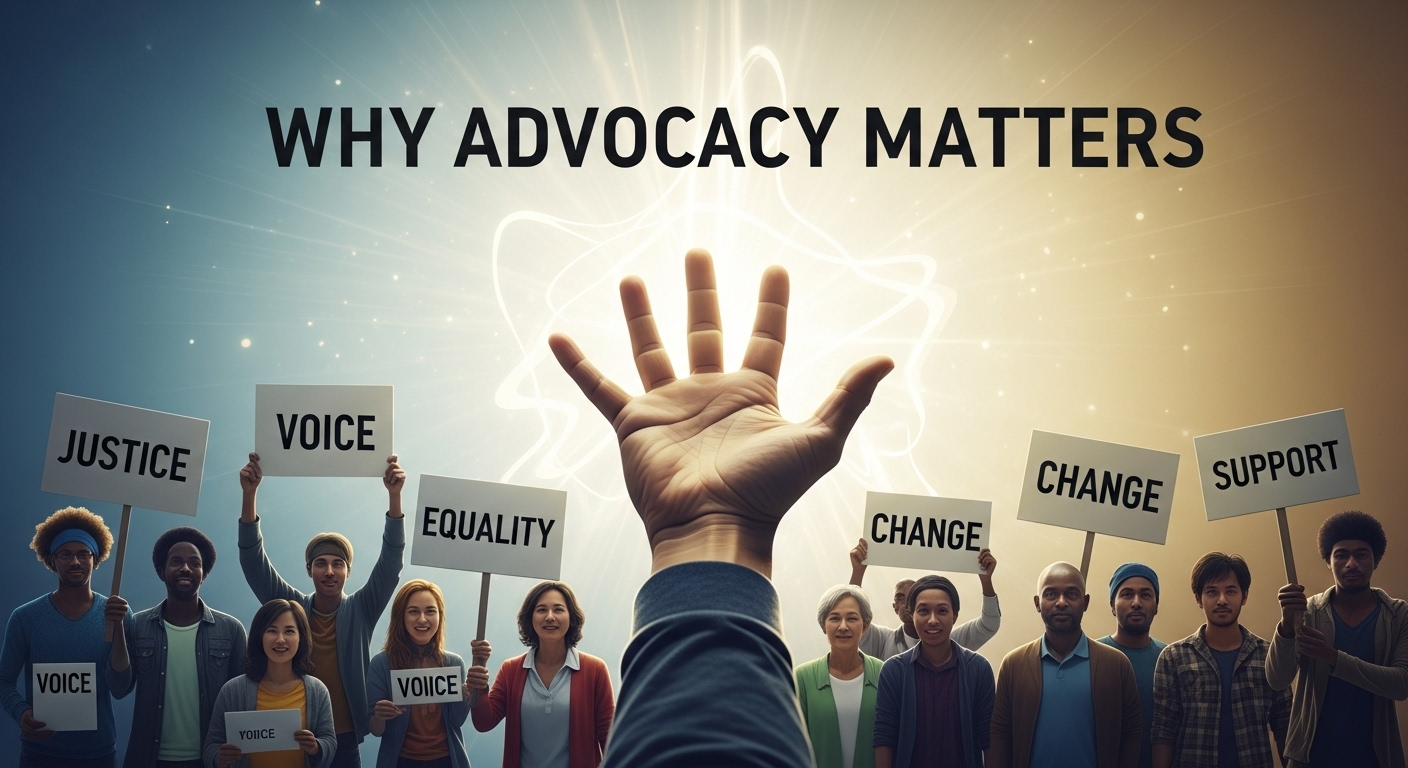
Advocacy is essential in dismantling systemic discrimination — including fatphobia, ableism, and racism in healthcare, fashion, and workplaces.
- Fights systemic discrimination (e.g., fatphobia, ableism, racism).
- Amplifies silenced voices—especially from marginalized communities.
- Creates lasting change beyond individual self-love.
🎯 Key Areas for Advocacy
1️⃣ Media & Advertising
- Demand diverse representation in ads, TV, films, and magazines.
- Support inclusive creators (e.g., @mynameisjessamyn, @disabilityreframed).
- Call out tokenism – true inclusion goes beyond “just one” marginalized model or actor.
2️⃣ Fashion & Beauty Industry
- Push for extended sizing — many brands stop at XL or 2X.
- Support adaptive clothing lines (e.g., Tommy Adaptive, Slick Chicks).
- Boycott brands that Photoshop or exclude marginalized bodies.
3️⃣ Healthcare & Policy
- Combat weight bias in medicine (e.g., over-attributing issues to weight).
- Advocate for inclusive insurance coverage (e.g., gender-affirming care, mobility aids).
- Support laws against size and ability discrimination (e.g., UK’s Equality Act).
4️⃣ Social Media & Digital Spaces
- Report body-shaming content and algorithms promoting “ideal” bodies.
- Boost marginalized creators — donate, credit, share thoughtfully.
- Create safe, moderated communities that prioritize inclusion.
🗣 How to Be an Effective Advocate
- Educate yourself: Read books like "The Body Is Not an Apology" by Sonya Renee Taylor and "Disability Visibility" by Alice Wong.
- Use your privilege: Speak up when others are excluded, especially if you're in a dominant group (e.g., thin, able-bodied).
- Support organizations doing the work:
- NAAFA (National Association to Advance Fat Acceptance)
- The Body Positive
- Disabled & Proud
🌟 Representation Beyond Tokenism
- Include marginalized voices in decision-making (e.g., hiring fat designers, disabled stylists).
- Show bodies in real-life contexts — scars, mobility aids, stretch marks, aging, and more.
- Normalize what society deems “unacceptable” — like cellulite, body hair, or non-surgical bodies — in mainstream spaces.
🔥 Final Thought:
“Body positivity without advocacy is just a trend. True change happens when we fight for systems that honor all bodies—not just the palatable ones.”
Daily Practices to Cultivate Body Love
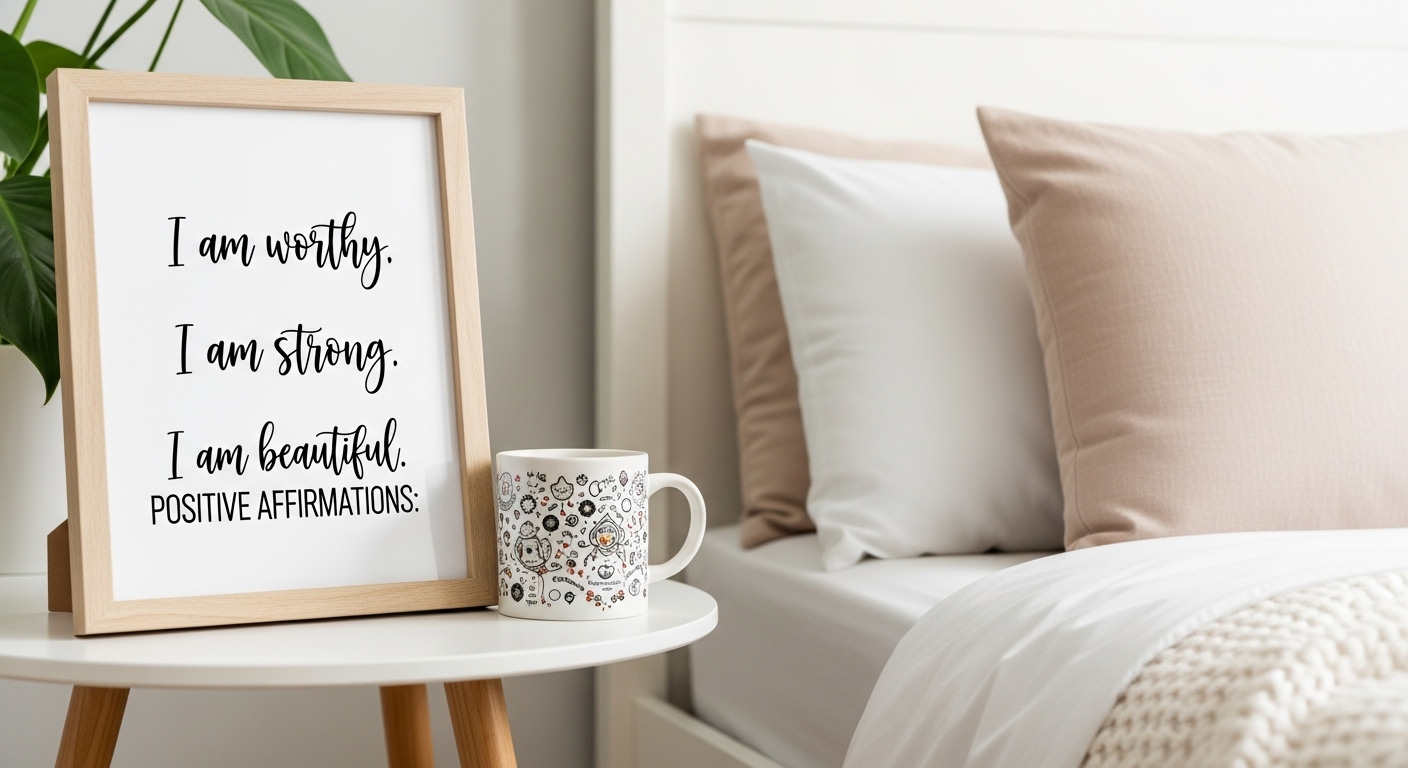
Loving your unique body is a journey, and small daily habits can make a big difference in nurturing self-acceptance and confidence.
💡 Simple Daily Practices:
- Morning Affirmations: Start your day by saying positive affirmations like “I love and accept my body as it is” or “My body deserves kindness and care.”
- Mindful Self-Check-In: Take a moment during the day to notice how your body feels. Appreciate its strength, movement, or any sensations without judgment.
- Gratitude Journal: Write down 3 things your body did for you that day — from breathing and walking to smiling or hugging someone.
- Move Joyfully: Engage in any physical activity that feels good to you, whether it’s stretching, dancing, or a simple walk.
- Practice Self-Compassion: When negative thoughts arise, gently remind yourself that imperfection is human and kindness is key.
- Set Boundaries: Limit exposure to negative influences, whether people or media, that make you doubt your body’s worth.
- Nourish Your Body: Choose foods and drinks that make you feel energized and happy, and stay hydrated.
- Celebrate Small Wins: Acknowledge progress, no matter how small — every step toward body love counts.
🌟 Remember:
Consistency is more important than perfection. These daily practices build a foundation of love and respect for your unique body over time.
Journaling Prompts to Cultivate Body Love
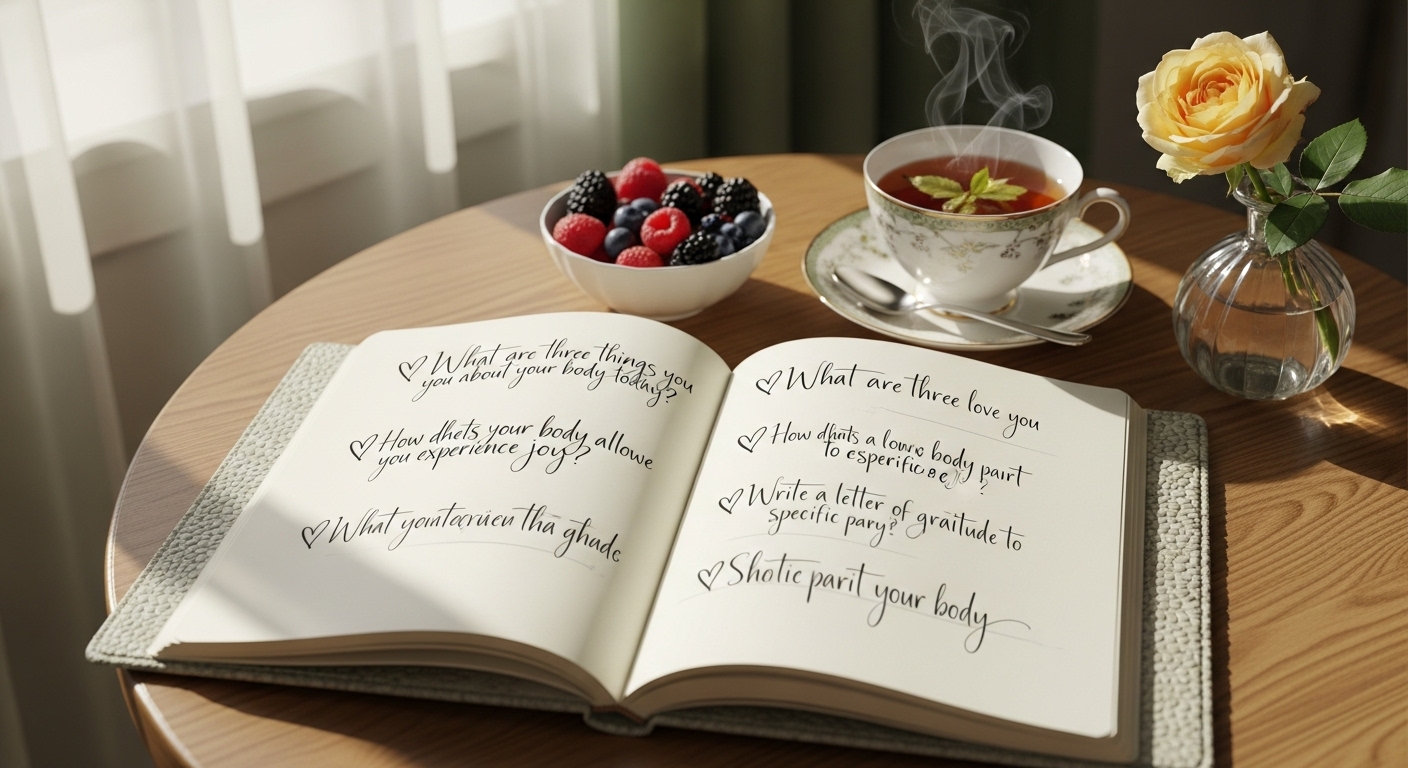
Use these prompts to reflect deeply, shift your mindset, and reconnect with your body in a loving way.
💖 Self-Appreciation
- What do I love most about my body today?
- Which part of my body do I feel most connected to, and why?
- What has my body done for me recently that I am thankful for?
🧠 Mindset Shifts
- What negative belief do I hold about my body that I want to release?
- What would change in my life if I accepted my body fully, right now?
- How can I show my body more kindness and patience?
🪞 Healing & Compassion
- Write a letter of forgiveness to your body.
- What is a hurtful comment or moment related to your body that still lingers — and how can you begin healing from it?
- What would I say to my younger self about body image?
🌱 Growth & Empowerment
- How has my relationship with my body evolved over time?
- What makes my body strong, unique, or powerful?
- What does “body love” mean to me personally?
🌟 Celebration & Confidence
- When was the last time I truly felt proud of my body?
- What clothes, activities, or environments make me feel most confident?
- How can I celebrate my body this week — even in a small way?
🌸 Self-love Rituals
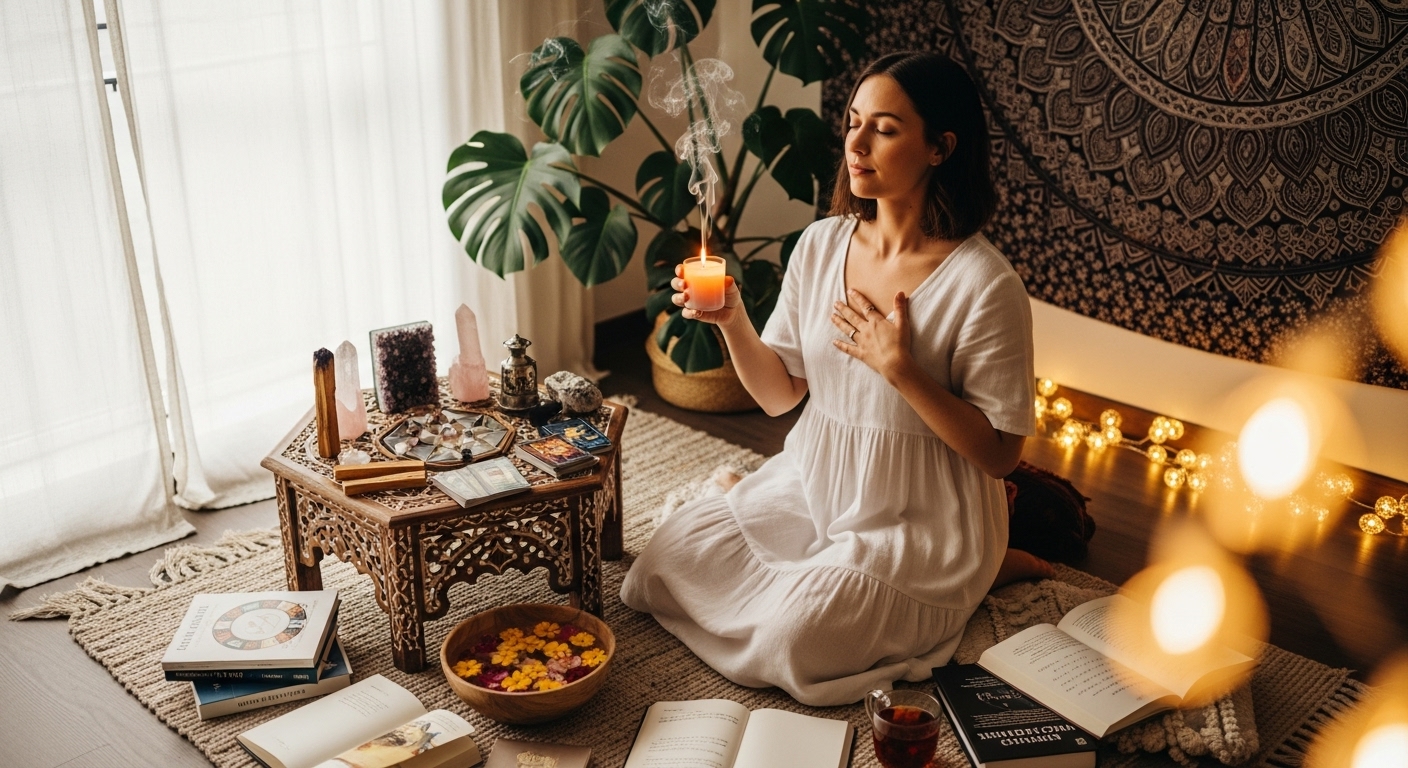
Self-love is a daily practice, not a one-time achievement. Creating small, intentional rituals can help you connect with yourself, nurture your mind, and honor your body.
- Start your day with affirmations or a gratitude list.
- Take mindful breaks — sip tea, breathe deeply, or listen to calming music.
- Journal your thoughts and feelings without judgment.
- Create a bedtime routine that helps you unwind and sleep peacefully.
💡 Tip: Even 5 minutes of intentional self-care can shift your mood and energy for the day.
🌟 Your Journey, Your Way
Caring for your body isn’t about following rules — it’s about building a relationship with yourself based on kindness, respect, and joy. Whether you’re nourishing your body, staying hydrated, moving in ways you love, or practicing self-care, remember: every step you take is a celebration of you.
💖 Final Thought: You are enough exactly as you are — today, tomorrow, always.
💬 Love Your Unique Body – Frequently Asked Questions
Body Neutrality encourages you to accept your body as it is without always focusing on appearance — valuing what it does, not how it looks.
• Setting boundaries with people who shame
• Reframing negative thoughts
• Engaging in inner child work
• Surrounding yourself with body-positive content and communities
• Keep a gratitude or body journal
• Speak kindly to yourself
• Dress in clothes that feel good
• Move your body for joy, not judgment

📱❤️ Social Media & Body Love
Social media can be both inspiring and challenging when it comes to how we see our bodies. While it offers spaces to celebrate diversity and connect with others, it can also expose us to unrealistic standards and comparisons.
🌟 Using Social Media to Support Body Love:
💡 Tips for a Healthier Social Media Experience:
🌈 Remember:
You control your social media experience. Choose to surround yourself with positivity and love — online and offline.